






































The Ball State Daily News (USPS144-360), the Ball State student newspaper, publishes Thursdays during the academic year, except during semester and summer breaks. The Daily News is supported in part by an allocation from the General Fund of the university and is available free to students at various campus locations.
CONTACT THE DN
Newsroom: 765-285-8245
Editor: 765-285-8249, editor@bsudailynews.com
Sports Entertainment.
April 18: Siddhant Shah and Aryan Vaidya disappeared after swimming with a group of friends in Lake Monroe in Bloomington, Indiana, April 15. The Indiana Department of Natural Resources confirmed Indiana conservation officers found the 19-year-old and 20-year-old in 18 feet of water near the Paynetown Marina Tuesday. High winds slowed the three-day search.
THURSDAY
FRIDAY
SATURDAY
SUNDAY
MOSTLY SUNNY
Hi: 80º
Lo: 52º
April 17: Ralph Yarl was shot in the forehead and the arm by Andrew Lester, a white 84-year-old, when Yarl mistakenly went to Lester’s house to pick up his two younger brothers, a situation the prosecuting attorney said had a “racial component” to it. Despite Lester’s first-degree assault charge, there is nothing in the charging documents relating the shooting to race. The 16-year-old has been released from the hospital and is recovering at home.

VOL. 102 ISSUE: 30
EDITORIAL BOARD
Elissa Maudlin, Editor-in-chief
Evan Chandler, Print Managing Editor
Angelica Gonzalez Morales, Digital Managing Editor
Kyle Smedley, News Editor
Hannah Amos, Associate News Editor
Daniel Kehn, Sports Editor
Corbin Hubert, Associate Sports Editor
Lila Fierek, Lifestyles Editor and Copy Director
Mya Cataline, Associate Lifestyles Editor
Grayson Joslin, Opinion Editor
KwaTashea Marfo, Associate
Opinion Editor
Amber Pietz, Photo Editor and Visual Editor
Jacy Bradley, Associate Photo Editor
Jacob Boissy, Video Editor
Olivia Ground, Social Media Editor
Alex Bracken, Visual Editor
Josie Santiago, Visual Editor
Lisa Renze-Rhodes, Adviser
The Daily News offices are in AJ 278, Ball State University, Muncie, IN 47306-0481. Periodicals postage paid in Muncie, Indiana.
TO ADVERTISE
Call 765-285-8256 or email dailynewsads@bsu.edu between 8 a.m. to 5 p.m. Monday - Friday or visit ballstatedaily.com/advertise.


TO SUBSCRIBE
Call 765-285-8134 between 9 a.m. to 3 p.m. Monday - Friday. Subscription rates: $45 for one year. POSTMASTER: Send address changes to The Daily News, AJ278, Ball State University, Muncie, IN 47306.
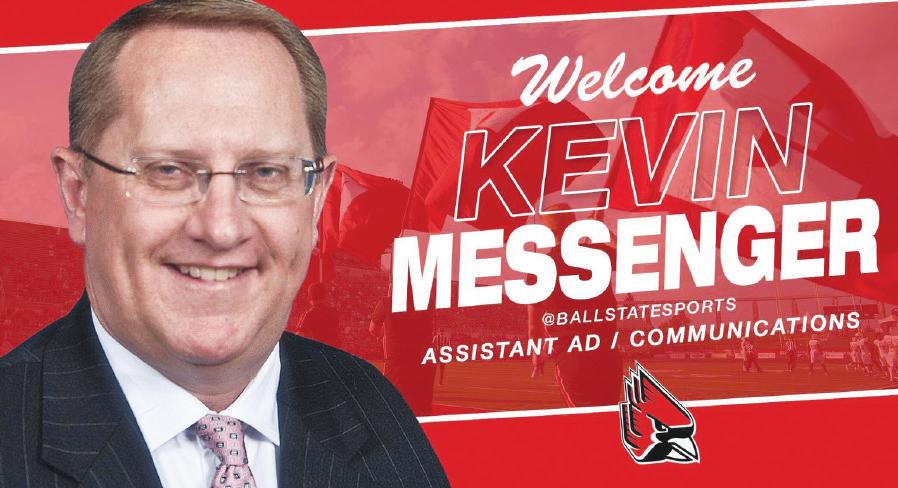
TO DONATE Visit BallStateDailyNews.com.
JOIN THE DAILY NEWS Stop by room 278 in the Art and Journalism Building. All undergraduate majors are accepted and no prior experience is necessary.
The Ball State Daily News is committed to providing accurate news to the community. In the event we need to correct inaccurate information, you will find that printed here.
To submit a correction, email editor@bsudailynews.com.
RAIN SHOWERS
Hi: 57º

Lo: 46º
RAIN SHOWERS Hi: 51º

Lo: 33º
PARTLY SUNNY Hi: 47º

Lo: 31º
THIS WEEK: Much cooler temperatures into the start of next week, though conditions will start to dry out. Temperatures will start to warm up into the mid-60s by the middle of the week, however, this is still a touch below normal.
Waking Up with Cardinal Weather is Ball State University’s first and only morning mobile show focused on getting your ready for the day through local news, weather and lifestyle trends. Waking Up with Cardinal Weather airs every Friday morning at 8 a.m. at @cardinalwx live on Facebook.

At an apartment on West Jackson Street, Abbi Mastagh believed mold and mildew lived within a carpeted nook on the wall, one side of her shower’s exterior bubbled and her floor was slanted.
A few streets away on West Beechwood Avenue, Tracy Duddy and her son Cameron were certain the holes in the walls of his apartment were from rats, and the blotches on their feet, legs, arms and hands were bug bites.
About 30 minutes away in New Castle, a strange smell wafted up from Angela Canaday’s basement. The source: a murky, dark lagoon of sewage seeping onto the floor.
The three tenants didn’t know one another. Canaday, Cameron and Mastagh didn’t live in the same apartment building, and the severity of their
MiddleTown Property Group has made the decision not to work with property owners that refuse to make necessary investments in the properties that they own, and we manage. In addition, we are working with the City of Muncie on ways to improve the rental housing options in the community.”
problems were different.
But their situations were connected. They are among dozens of people who rented from the same property management company — MiddleTown Property Group — and they are among dozens of people who have had problems.
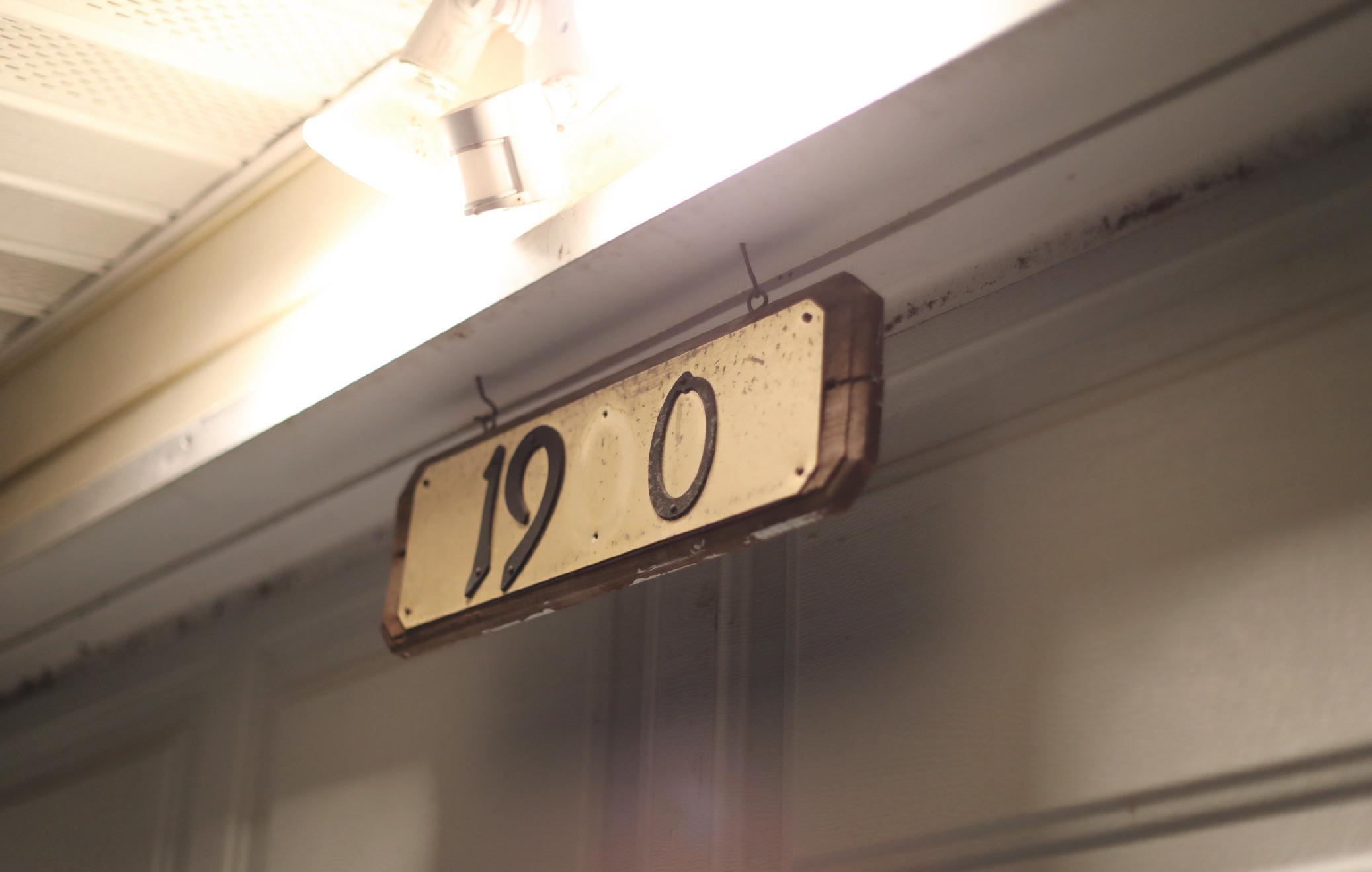
The company calls itself the largest rental company in Muncie, according to its website. Between both sections of its business, and with at least 3,300 units in its management portfolio, the company currently has rentals available throughout Indiana, including in Muncie, Indianapolis, Crawfordsville, Anderson and other areas.
MiddleTown Property Group is a property management company. They are hired by property owners to manage properties.
However, regardless of the company’s reach
and size, a private Facebook complaint group with around 1,600 members became active April 13, 2022, with a plethora of posts attached to its digital timeline. The posts depicted sewage, water leaks, growths on walls that tenants believed were mold, maintenance requests they said went unanswered and move-out charges they disagreed with, among other posts.
Brothers Dane and Derek Wilson, owners of MiddleTown Property Group, said via email they are “focused on continuous improvement.”
“Specifically, we are improving our training and implementing better systems that drive quality and accountability. We are making needed adjustments in our maintenance coordination and communication processes,” the Wilson brothers said via email. “Strategically, we are looking at who
we partner with and how we partner. MiddleTown Property Group has made the decision not to work with property owners that refuse to make necessary investments in the properties that they own, and we manage. In addition, we are working with the City of Muncie on ways to improve the rental housing options in the community. There are strategic investments to be made from infrastructure to revised policies that we would support and advocate to better the city’s housing stock.”
In a newsletter sent to current tenants of MiddleTown Property Group, the Wilsons and current president and CEO of the company Matthew Abner said they are “improving our maintenance coordination and quality, refining our customer communication and working only with owners who will invest in their properties.”
The Wilson brothers, citing the number of questions as well as a desire to protect tenants’ privacy, did not respond to specific issues raised by The Daily News, but they touched on different areas the company is addressing moving forward.
But in an eight-month investigation, The Daily News analyzed Indiana tenant law and business records and spoke with experts, property owners and representatives from the city of Muncie about MiddleTown Property Group. The Daily News also spoke with 20 tenants about their renting experiences, and many described hardships with the rental company.
Here are some of their stories.
Some tenants in MiddleTown Property Group rentals speak of their experiences with the property management company.The number plate in front of Zach and Alexandria Clark’s rental at 1900 N. Maddox Drive in Muncie, Ind. from MiddleTown Property Group is pictured with a missing number Jan. 20. JACY BRADLEY, DN
- DANE AND DEREK WILSON, Owners of MiddleTown Property Group
Continued from Page 03
It was a very clean and orderly house with a strange smell. That’s the first thing Julayne Telford, who works in housing stability, noticed when she entered her client, Angela Canaday’s, rental in New Castle.
The smell was sewage, and on Telford’s next
“It was like black sludge the first time I went down there and then, when I came back the second time … at that point, there was actually raw sewage [on] the basement floor,” Telford said. “I mean, there was no mistaking what that was.”
Canaday said people would come on the front porch and could smell her home.
“I was so embarrassed,” she said. “My nerves and anxiety were all [bad]. I felt like no one was listening; I left [MiddleTown Property Group] several emails and messages.”
The sewage was among other problems Canaday experienced in her MiddleTown
The New Castle deputy building commissioner at the time Jeff Marcum determined her rental to be substandard in June 2022 for open junction (electrical) boxes in the basement, wires over a water heater, a ceiling leak and the toilet not correctly flushing. The rental was declared substandard again in August 2022 due to water leaks.
Kenny Melton, New Castle’s current building commissioner, said the rental was also determined substandard housing Aug. 31, 2022, due to the
Canaday’s home was red-tagged, which requires disconnection to a service or piping, for gas problems July 25, 2022, with a note saying operating the furnace without a qualified person would result in injury, property damage or death. She said there were times the gas had to be shut off and where she wasn’t able to use the stove.
In an email Canaday wrote to Matthew Abner, president and CEO of MiddleTown Property Group, Aug. 30, 2022, she said she had issues ever since moving in May 2022. The subject line of the email read “Crisis situation at my apartment.”
A leak in the ceiling “pour[ed] in rain,” her roof needed to be replaced and her front window was damaged, she said. Condensation was in the roof, and there was sewage and mold. She said in the email she had left multiple maintenance requests.

But Canaday was not the only one with feces in
Chrissy Anderson, another tenant with sewage issues, said the smell came up from the furnace and “ruined hundreds of dollars of [her] stuff.” She also wasn’t able to do her laundry due to her washer and dryer being in the basement, the location of
“I shouldn’t have to trek through human feces to do my laundry,” Anderson said.
MiddleTown Property Group decided to alleviate this issue through augering it, she said, referring to a tool used during the process that has an electric motor and a cutter head that cuts through the clog,
Anderson said MiddleTown Property Group started working on augering the sewage two-to-
three days after she notified them the first time the sewage happened.
The Daily News received screenshots of text messages from Anderson to a MiddleTown Property Group representative about the sewage in her basement and how the augering was not working after four times trying. The representative said the sewer system needed to be replaced.
The Wilson brothers, citing local infrastructure issues, responded about the sewage and mold issues some tenants experienced.
“We are focused on continual improvement, but know that Muncie, in particular, last summer experienced a lot of sewage backups with the excessive amount of rain we had,” The Wilson brothers said via email. “These floods occur when the local infrastructure is unable to disburse the amount of rainfall adequately during high periods of rainfall. The city and local sanitary district have completed several projects and have discussed a long-term plan to address these issues. … The backups can cause mold or mildew issues, and we have worked to remediate it in every instance we were made aware of.”
Anderson said when it came to communicating with MiddleTown Property Group, it seemed like no one was ever on the same page. She said she could never find someone who worked there consistently.
She said when she did her first walkthrough of the property, she wanted peeling wallpaper, a broken stove and what she believed to be a moldy fridge fixed. MiddleTown Property Group gave her a new fridge a few days after moving in, according to text messages she provided The Daily News. She asked about the broken stove in those texts, but the representative from MiddleTown Property Group told her they would just be replacing the fridge at the time.
In the beginning, an employee said they’d take off some money on the deposit and wanted to give her an extra week to pay rent and a discount on money she owed, she said, providing photo evidence of the text messages detailing that offer.
However, she said these promises were also not fulfilled, and, through the text messages, a different employee told her the original employee who promised her rent discounts and an extra week of paying rent wasn’t authorized to promise that.
“People are just trying to live; they have high enough rent costs, and they have to worry about getting stuff done with [MiddleTown Property Group]. It’s just not fair,” Anderson said.
When it comes to her concerns, she wants MiddleTown Property Group to fix their communication, fulfill promises, take care of tenants and take care of their properties.
“They hold a whole monopoly over Muncie,” Anderson said, “ … and then you just don’t know where to go about it.”
I shouldn’t have to trek through human feces to do my laundry.”
- CHRISSY ANDERSON, Tenant
Bugs. Dried liquid dripped on the walls. Sticky floors.
“This was the most disgusting thing I’ve ever seen,” Tracy Duddy said. “It was unimaginably gross.”
Despite how “gross” she felt the rental was when her son Cameron moved in, Tracy Duddy said they paid a redecoration fee in place of a security deposit.
Pictures taken by Duddy showed evidence of cabinets and cupboards not being cleaned from the previous owner’s things, like hair ties on the bathroom floor and home products on the shelves.
But what truly stopped Cameron from moving in on his original move-in date, Duddy said, was the bugs.
“When we got there, it was so infested with bugs; we were getting bitten so badly,” she said, sharing photos she took of the situation.
Aug. 15, 2020, Tracy Duddy entered the MiddleTown Property Group office with the threat of a lawyer, declaring the apartment wasn’t clean or habitable. The front desk worker and a maintenance worker told her it had been cleaned — she said the maintenance person said they cleaned it themselves.
Believing she was being lied to, Duddy decided to clean it herself.
“The more I cleaned, the more I discovered,” she said.
A light socket jutted forward, not flush to the wall, and rat holes took up space. Tiny black pieces of rat and mouse feces were “everywhere” in the kitchen.
The Daily News obtained an email to Duddy from the National Pest Management Association, stating several of her photos she sent to them indicated there was a rat/mouse infestation, including evidence of rodent droppings and sebum. Sebum, they said in their letter, is material rodents excrete from rat hair and skin that can rub off. However, in Cameron’s lease, tenants were responsible for dealing with pests and rodents.
Tracy Duddy said MiddleTown Property Group started to work on things after they turned in their vacate notice, like screwing plywood on the wall to cover rat holes. However, in a note on one of the photos Duddy gave The Daily News, she said “the patches are inadequate as large gaps still exist which would allow rat access.”
Months after vacating, MiddleTown Property Group took Cameron and his roommate to court April 1, 2021, for “nonpayment of rent and damages and defendants’ answer.”
According to the judgment order, judge of District Circuit Court Four John Feick found the Duddys and Cameron’s roommate and his roommate left the rental in better condition than when they found it and did not receive a rental that justified $880 a month.
The photos MiddleTown Property Group placed online differed from the rental Cameron and his roommate got, according to Feick, in reference to its usability and cleanliness.

Feick stated in the order that MiddleTown Property Group had two standards for cleaning the rental properties with off-campus cleaning “more thorough and completed” than on-campus cleaning.
When asked by The Daily News why this is the case, the marketing team for MiddleTown Property Group originally said via email, “There is no difference between on campus versus off campus cleaning.”
However, The Daily News asked for clarification
due to the Duddy ruling.
“We are working on the future,” marketing for MiddleTown Property Group said via email. “We are focused on continuous improvement and making adjustments in our maintenance coordination and communication processes.”
Stephen Hessel, assistant chairperson of the Department of Modern Languages and Classics, heard about the MiddleTown Property Group tenant complaints situation from his students. Hessel also manages and rents out his former home near the Village and has been doing so for about six months.
He is not a proponent of the concept of a redecoration fee.
“To charge people a cleaning fee to a property they are just moving into is, in my opinion, not a good business practice,” he said, “because they are moving into a property whose cleanliness and state has not been impacted by them, in any way, shape or form.”
Yvonne Thompson, human rights director for the City of Muncie, agrees.
“You can’t charge a so-called redecoration fee, and you have a lot of people saying, ‘Well, my place was never touched. You know, it wasn’t cleaned up,’” Thompson said. “… From what I can see, they are not charging for [a] security deposit because that’s under Indiana code. A redecoration fee is not under code.”
The Wilson brothers said via email that redecoration fees are “a common practice in Muncie and in the industry,” and they are a smaller amount than a typical security deposit.
The Daily News reached out to 14 different rental companies in Muncie, asking whether they use a refundable security deposit or a redecoration fee. Ten companies said they use a security deposit, including one company deducting cleaning charges from the deposit before refunding. The four others did not respond.
The biggest concern for Duddy is for students who just wanted the college experience, like she wanted for her son.
“He had to move back home because [of this situation],” she said. “And now none of his friends are wanting to move back because [of MiddleTown Property Group] … Who’s he going to rent from?”
Zach Clark worried about his dogs, Kenji and Jager. Despite now roaming around and scratching human hands to receive affectionate pets, there was a time the rental was 80 to 90 degrees with no ability to turn off the thermostat — a time the rental wasn’t safe for Kenji and Jager.
Clark said both Kenji and Jager would jump in the bathtub and drink the water as a way to cool off. Jager, Clark said, usually doesn’t like baths. The floor bubbled up and came off the ground due to the placement of their vents, and Clark said closing the vents made it worse.
“These [dogs] can’t sit in 98-degree weather all the time, be trapped in a house,” he said, “and we couldn’t let them in the backyard at the time because the fence used to be broken.”
The Daily News received a photo of the thermostat at 93 degrees and a photo of floor issues from Aug. 22, 2022, with time evidence.
This was only one aspect of Clark, and his wife Alexandria’s, experience with MiddleTown Property Group.
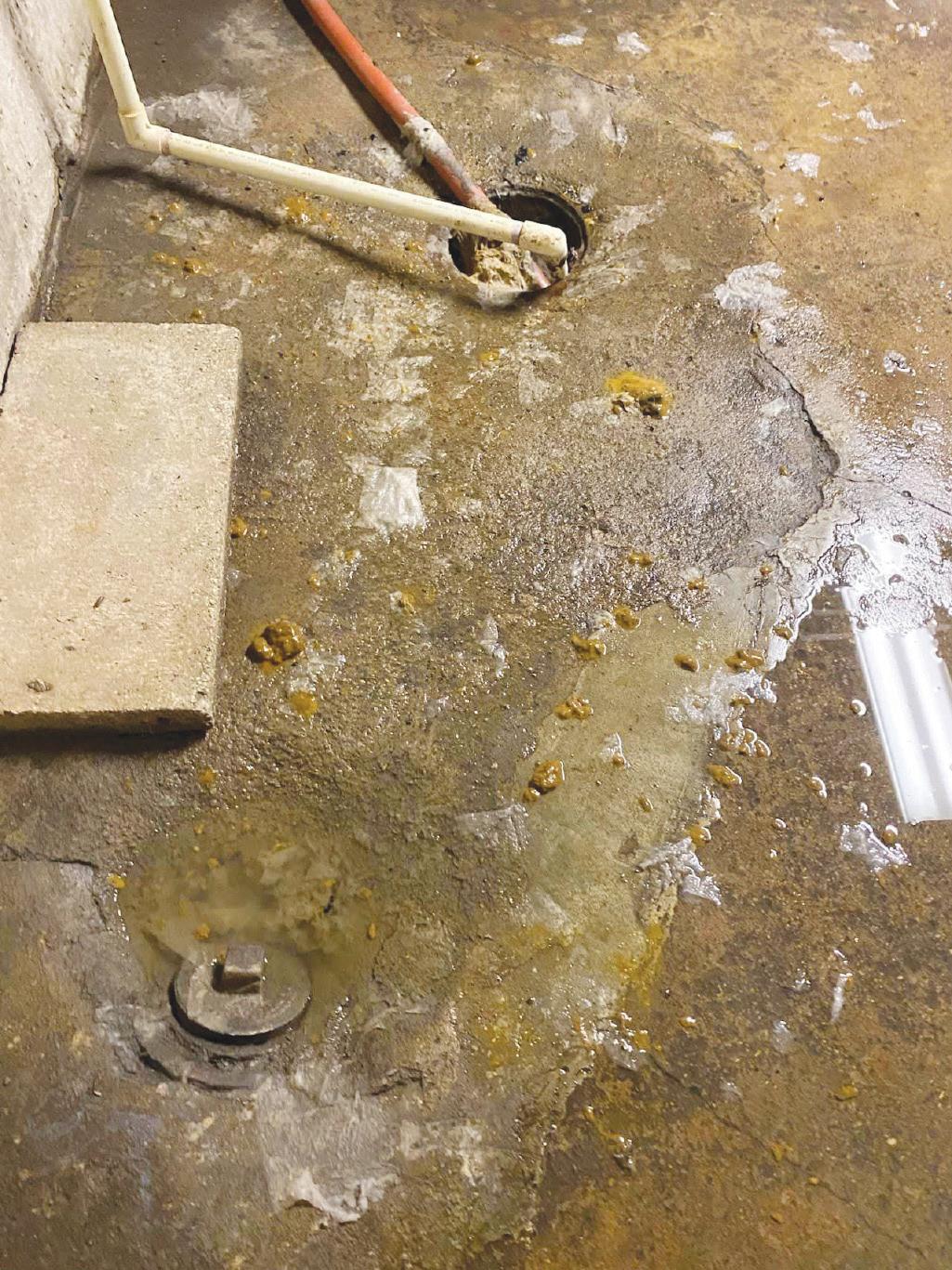
I was so embarrassed. My nerves and anxiety were all [bad]. I felt like no one was listening; I left [MiddleTown Property Group] several emails and messages.”
- ANGELA CANADAY, Tenant
Continued from Page 05
When Alexandria Clark, first-year pre-interior design major, first moved into her rental with Zach in August 2022, she said her first experience was “terrible.”
“It wasn’t cleaned at all,” she said. “There were still pubes on the toilet.”

She said maintenance left their lunch trash, still scattered on the grass of their side yard, at the property. Alexandria and Zach haven’t touched it, they said, because it isn’t theirs.
When Alexandria first saw the apartment, she noticed mold outlining their bathtub, but she said it got worse as time went on.
“I didn’t want to take a bath,” she said. “But it was really cold, and I love baths. I need to have my baths, so [I] just lay in there, and I’m tucking my head away from the corners and everything. [I] was literally surrounded by it.”
In November, three months after move-in, Alexandria said maintenance came and resealed the mold around the bathtub. They missed the bottom of the soap bar, however, which still had mold on it Jan. 20, 2023.
On Jan. 11, 2023, they filed a maintenance request stating their previous maintenance request was canceled about blinds not being fixed. They also filed a maintenance request Oct. 28, 2022, about the bathtub getting clogged and not draining and another about the sink leaking at the aerator Jan. 3, 2023. They also made a maintenance request about the dryer not drying their clothes fully.
There are over 100,000 varieties of molds in existence. I think it’s safe to say that many molds are black in color at some point in their life cycle. Rarely, if ever, do ‘black mold’ claims come with lab analysis to show which variety of mold is present.”
- JAMMIE BANE, Administrator at Delaware County Health DepartmentTheir broken fence was fixed around January or February, Zach said. They also had a bathroom door that wouldn’t lock, which was also fixed, as well as trim issues that were fixed. The broken blinds were fixed around January or February 2022, Zach said.

The door without a track to slide in and out of and a problem with the hallway door are current problems they are still dealing with.
“This isn’t even the worst of it, and we know that,” Zach said. “This is nowhere near compared to what other people are dealing with.”
When Robert Rauch and Deb Flynn first looked at their rental, they said the MiddleTown Property Group employee was polite and “really nice.”
That is, they said, until the two signed their lease.
Among other issues was their leaking ceiling, which dripped water over a live outlet, according to a video sent to The Daily News. Rauch and Flynn also mentioned sewage coming from the bathtub and sink, as well as toilet issues.
But Rauch and Flynn said what made them break their contract was what they believed was black mold.
“It was all over the wood, it was all over the insulation, everything up there,” he said.
With the first downpour, there was a massive leak “almost like a waterfall coming down,” Rauch said. Paneling pulled down on one of
Just seeing all those pictures [on Facebook] and all those people [going] through the same stuff, how can they get away with that?”
- ROBERT RAUCH, Tenantthe beams, and Rauch said he could see into the rafters, which appeared to Rauch as having been covered in black mold.
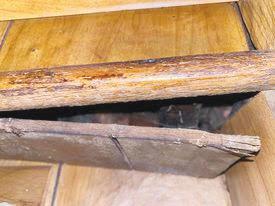
“I was disgusted,” Rauch said. “… For what I was paying there, that place should’ve been immaculate.” His and Flynn’s rent was $1,100 a month, excluding utilities.
Rauch put in a maintenance request June 23, 2022, about water leaking onto the outlet and mold, stating it was the fourth time in the last three months MiddleTown Property Group had been notified, and Rauch claimed MiddleTown Property Group was canceling his maintenance requests.
“They refused to come out and fix it,” Rauch said, referring to what he believed was mold.

However, Jammie Bane from the Delaware County Health Department said there are many misconceptions about black mold.
“Most ‘black mold’ claims are made based on the color alone,” he said via email. “There are over 100,000 varieties of molds in existence. I think it’s safe to say that many molds are black in color at some point in their life cycle. Rarely, if ever, do ‘black mold’ claims come with lab analysis to show which variety of mold is present.”
Although he doesn’t hold certification in mold identification, he said via email he has experienced a lot of people saying something was “black mold” when it was really mildew that was common. He said via email the color of mold doesn’t determine its threat.
The Delaware County Health Department views mold as an allergen rather than a threat, Bane said via email.
In response to mold and sewage issues, MiddleTown Property Group referenced the extra rainfall causing the sewage backups. The Wilson brothers via email chose not to speak on specific tenant experiences, citing a desire to respect the tenants’ privacy, and did not answer all questions from The Daily News due to the number of questions.
There were other points of contention for Rauch, Flynn and MiddleTown Property Group. A maintenance request from Rauch stating the ducts in the rental had collapsed was issued to MiddleTown Property Group July 11, 2022, where Rauch mentioned his concern with MiddleTown Property Group deleting his maintenance requests, and that the issue had been going on for six months.
Rauch and MiddleTown Property Group did not give evidence of these multiple requests.
“Just seeing all those pictures [on Facebook] and all those people [going] through the same stuff, how can they get away with that?” Rauch said.
The door was locked, and Melissa Bass’ 16-yearold daughter was watching her siblings. Bass told her and her siblings not to open it for strangers. Yet, at their door, a group of men were trying to get in. The men didn’t call their mom. They didn’t leave.
Instead, they entered anyway.
Bass was out getting her nails done when MiddleTown Property Group tried to give a tour of Bass’ and her children’s rental.
“Someone can really be hurt …” Bass said. “They just really don’t care. They don’t care, and that’s the main issue.”
The Wilson brothers did not comment on this incident, citing a desire to protect the privacy of the tenants and due to the amount of questions The Daily News asked. However, they said maintenance workers are required to knock and announce themselves prior to entering a rental.
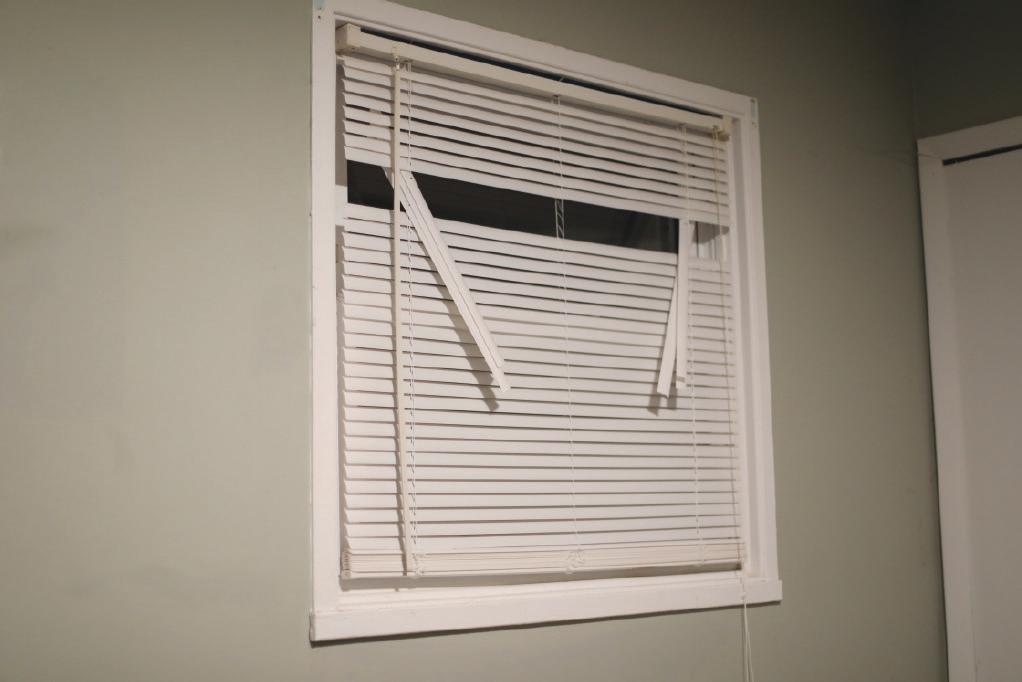
Bass equated being stuck in a lease to being stuck in a marriage since it feels like there’s no way out. She said since she and others signed their leases with MiddleTown Property Group, people viewed them as having signed up for this.
“Nobody really thinks someone is going to take advantage of something like that,” she said. “… They can just go in whenever they feel like it, no one is gonna sign up for something like that.”
Bass also lived with toilet plumbing issues and sent The Daily News video documentation. She sent records of payment to The Daily News, and she said she has never had issues with her rent payments.
MiddleTown Property Group put out a statement April 18, 2022, mentioning Bass and a post she made. The majority of the statement surrounded another tenant, Cindy Rasar, where MiddleTown Property Group walked through how they rectified her concerns. The statement document was given to The Daily News by Bass, not by MiddleTown Property Group.
After Bass posted something about the rental company on social media, according to the statement, MiddleTown Property Group said they went through comments on the post to determine whether commenters were tenants past or present.
When speaking about Rasar, MiddleTown Property Group said they “felt their team did not live up to our standards,” and they said they had record her fridge had died and received approval of the property owner to replace the fridge but were unaware the fridge was never delivered. MiddleTown Property Group said they reimbursed Rasar for the fridge and gave her $100 credit for the spoiled food.
MiddleTown Property Group also said in the statement they submitted paperwork to Lifestream to work on Rasar’s accessibility ramp and temporarily stabilized her ramp until Lifestream got the new ramp. At the time of the statement, the new ramp had not been delivered, and MiddleTown Property Group said it was the responsibility of Lifestream now.
In this statement, they mentioned “improv[ing] our processes and communication” and to “continue improving not just for our owners but also our tenants.”
Referring to Bass, they said in their statement, “We absolutely want the opportunity to correct any situation where our team makes a mistake. We stand our ground, however, if a resident is repeatedly damaging a property or not abiding by the conditions of their lease, both of which is the case with Ms. Bass.”
any tenant in particular, citing tenants’ privacy and the amount of questions. Bass denies damaging the property beyond normal wear and tear.
from Bass depicting two maintenance workers saying they had told MiddleTown Property Group they needed to redo the whole septic line, but the workers said MiddleTown Property Group wanted band-aid fixes. Eventually, the line was fixed.
“[They] kept pushing it off, pushing it off and then a whole year later, they do what they should’ve done in the beginning,” Bass said.
Walter Powe, owner of WL Power LLC, said he doesn’t work directly for property management companies anymore due to his experiences. Although he did work with the owner of Anderson’s rental, his experiences were not specific to MiddleTown Property Group and he spoke about property management companies as a whole.
“[Property management companies] have a tendency to hire anyone,” he said. “Anyone down on their luck can come in, whether they can do [the job] or not.”
He suspects this is often to make more money, as the employees of the management company do a $200 job which should’ve been a $600 job, he said.
“It’s important; who wants to live in a house with some guy [doing maintenance] who [doesn’t] know what he was doing?” Powe said. “… A master knows what he’s doing.”
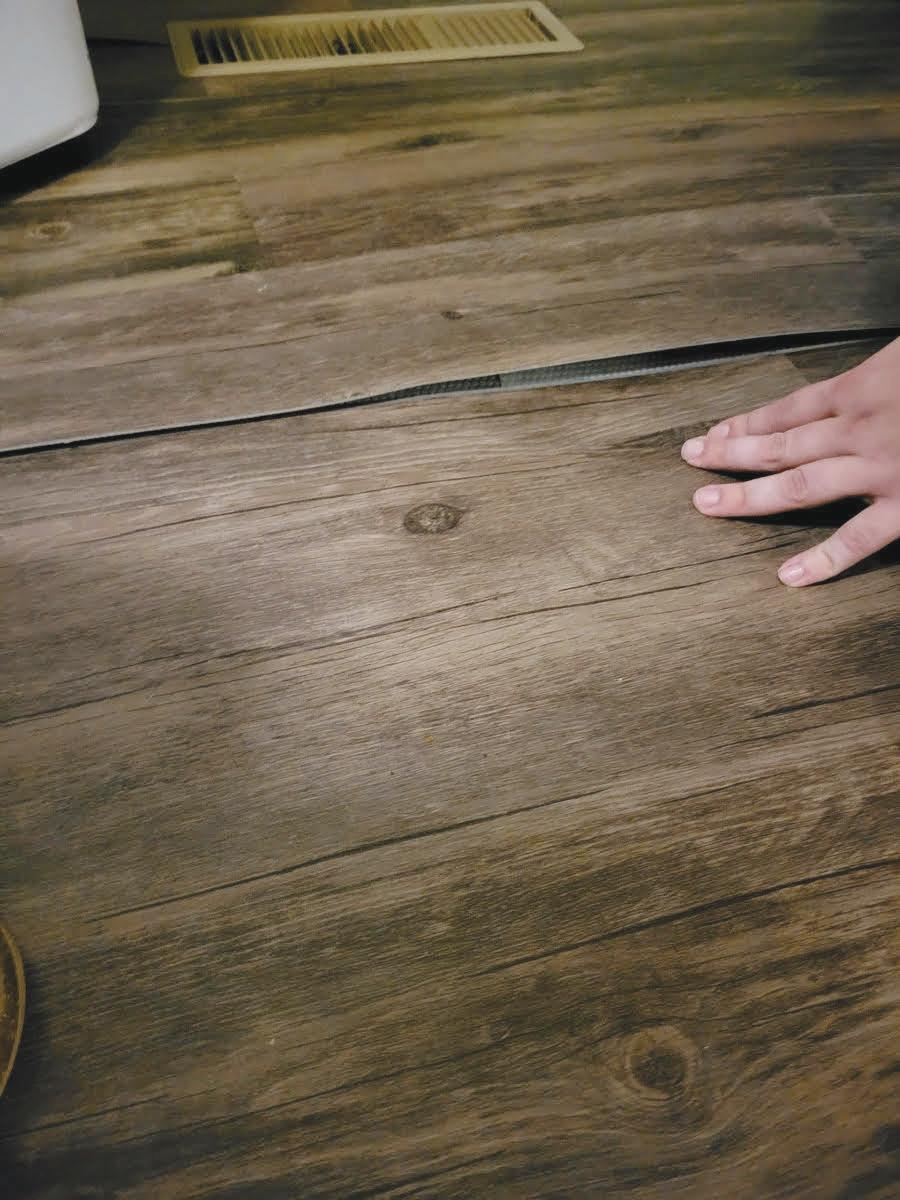
The Wilson brothers said via email new employees go through background checks and have a 30-day
tryout period where skills are assessed. They are trained closely by field supervisors, and the Wilson brothers said via email that additional training and
“The industry is short on qualified maintenance people,” the Wilson brothers said via email. “Labor shortages are common across the country. MiddleTown Property Group is working with Ivy
Emma Grow, 2022 Ball State graduate, said it felt cheap.
It felt obvious.
It felt bizarre.
Her feelings of frustration and humiliation stirred up again as she looked at the balance of the bill. She felt the company thought she was a “dumb college student,” so they could get away with it.
Her issues started April 2021 when MiddleTown Property Group became the new property manager of her home.
With a new payment portal she had to join, she started getting charged through both her old housing portal and the MiddleTown Property Group housing portal. The first two months she was reimbursed, but the problem continued.
By the end of her stay, MiddleTown Property Group owed her $730. She got an email Nov. 22, 2021, with charges listed through her tenancy that she sent to The Daily News.
The document stated Grow owed in charges the exact amount MiddleTown Property Group owed her in credit — MiddleTown Property Group didn’t owe her any refund.
“That kind of sparked my rage again,” she said. “I was just freshly frustrated.”
She said she went into the office to ask MiddleTown Property Group to provide receipts for the services they charged her for. These charges included a microwave cleaning fee, an appliance she said she never used because she had her own and a carpet cleaning fee of $400.
“So much of this just feels so pointed that it’s comical,” Grow said. “... You think I’m gonna believe that out of this magical circumstance that exactly what you owe me is what [my roommates and I] owe you.”
MiddleTown Property Group told Grow they’d give her $150 back for the carpet cleaning fee, and whenever she’d talk to employees in the office, they’d often say, “[You’ll] get your check next week.”
Grow said it didn’t come that next week, and she viewed the $150 as a “small olive branch” and as closure on her experience.
“It felt like that was the closing words; I feel like that was the end of the experience that could have been at least semi-finite or final,” she said.
Grow received the money Feb. 28.
The Wilson brothers said via email they would not comment on particular tenant situations citing a desire to protect the tenants’ privacy and due to the number of questions from The Daily News.
Emily Angle, 2022 Ball State graduate, is also still waiting for more specific information regarding her list of charges.
The itemized list of charges included: $32 for four drip pans and stovetops, $25 for a broken fridge door handle, $350 for furniture removal and $560 ($140 per room) for touch up paint. All of these charges signified maintenance beyond normal wear and tear of a rental.
Angle said the only reasonable charge was for the fridge door handle since the handle was broken, and she said she would be willing to pay for it. However, she said the other charges didn’t make sense as she was careful not to do anything to the walls, and anything she and her roommates did was normal wear and tear.
The Wilson brothers said via email charges are based on prices in the lease, which are predetermined and standardized. MiddleTown Property Group’s staff inspects the properties and takes photographs of the rentals, which are later cross-referenced against move-in inspections reported by tenants within 48 hours of move-in.
“Charges are sometimes delayed when there are
high volumes of residents moving out,” the Wilson brothers said via email. “This can occur during student move out when there are 500 plus moveout inspections to complete and review.”
Angle said she has filed a complaint with the attorney general, and she thinks she will be sent to collections. However, since no proof has been given to her about the charges, she said they aren’t going to pay, and her mom, who is a cosigner on the lease, is ready to fight.
“We will go to small claims if we have to,” Angle said.
Abbi Mastagh, who is soon to be in the applied behavioral analysis master’s program, placed a small battery on the floor near the wall with a limp heater draped to the ground. As she let go, the battery rolled almost seamlessly down the slanted bedroom floor.
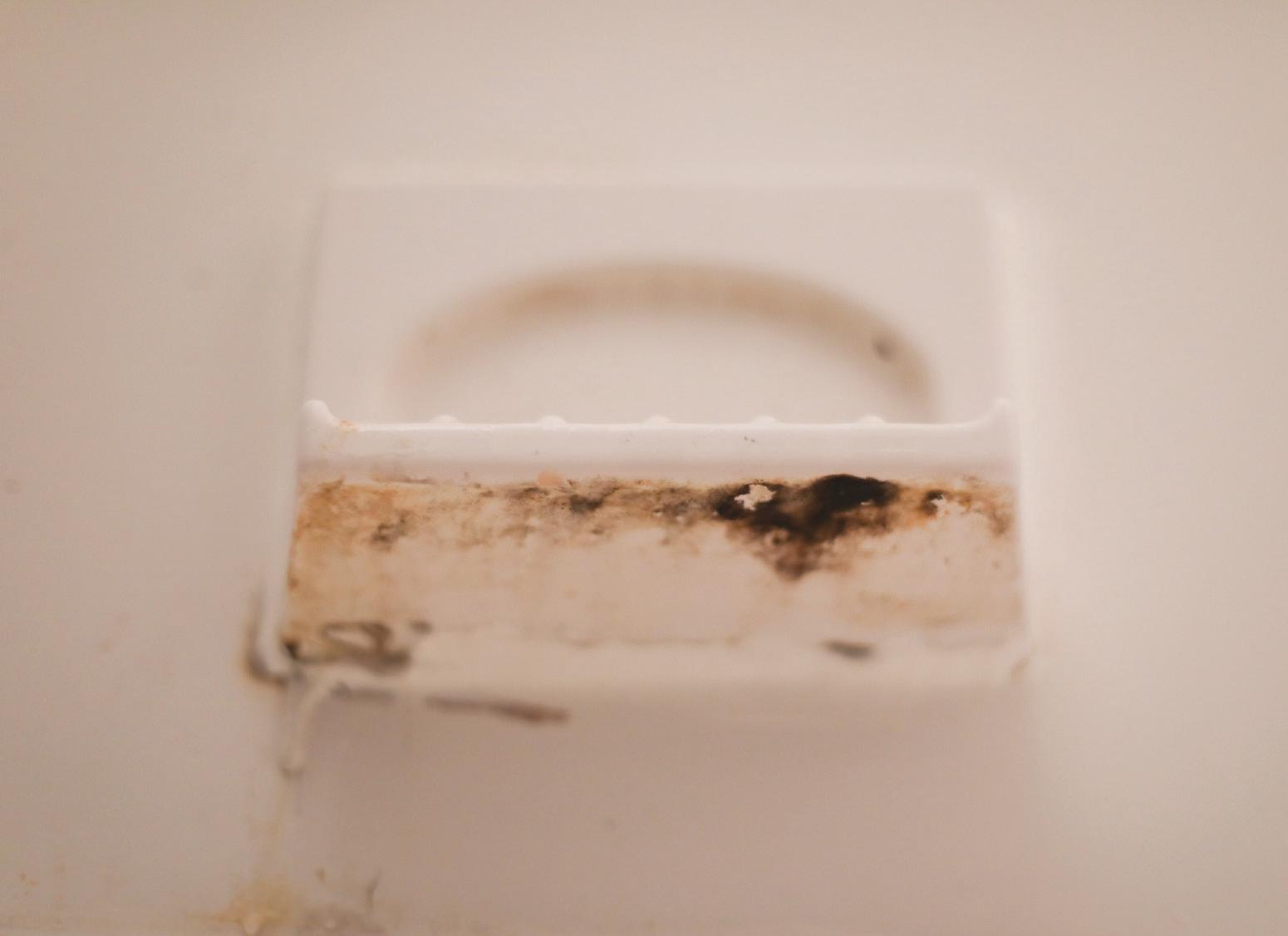
A kitchen leak. No hot water for a period of time. Water being shut off or unusable different times throughout renting. Electric flickering. Miscommunication. Fixes not actually getting fixed.
These were the reasons Mastagh moved her furniture out of the MiddleTown Property Group rental she still has to pay for until August, she said.
This wasn’t Mastagh’s first rental with MiddleTown Property Group. After her first lease ended, she didn’t have other roommates to renew
“At the end of the day, I was the only one touring the property when I went through it,” she said. “And I don’t know enough about foundational issues or piping issues or electrical issues to know and look around and notice that this clearly wasn’t the best option.”
Mastagh’s rental is currently heated from her downstairs neighbor’s heater, which flows through a vent in the kitchen up into Mastagh’s rental. Mastagh said she doesn’t use her heater now because she doesn’t need to due to her neighbor’s heat from the vent.
The vent also carries music, and, by looking closely, a small portion of the downstairs duplex can be seen.
Among other issues she said she has faced, Mastagh put in maintenance requests for her heat not working, warm water not working in the shower, mold growing by a window in the shower and on a carpeted nook in the wall, no power in the bathroom due to a fuse, a bathroom sink leak and a piece of ceiling falling out of part of the bathroom.
There were more maintenance requests she couldn’t access anymore that were shown in a screenshot she sent to The Daily News. There was no information on them to identify what issues they were about.
On one hand, she said MiddleTown Property Group was getting quicker and more diligent with getting people out to do maintenance. On the other hand, she said “it’s a lot of back and forth,” as well as a lot of waiting around for maintenance requests to get fixed.
However, her perception of the company has taken a turn for the worse.
“Up until this year, it was pretty good,” she said. “But this year, I told them I’ve been incredibly disappointed with the treatment, especially me
renting with them loyally for three years. I have never, ever experienced such neglect in a property or tenant ever. And although their customer service has improved, … when they do come out to fix things, they have to come out again the next week because it wasn’t fixed properly.”
She said maintenance, in most cases, comes back within two to three days, but with nonemergency fixes, it could be weeks, or it could fall in the cracks.
The Wilson brothers said via email that they invite residents with outstanding issues or concerns to contact the Resident Services office at 765-289-7618 option two or through email at residentservices@middletownpg.com.
“We started MiddleTown Property Group to manage our investment properties. As we grew, we saw an opportunity to employ and create jobs in Muncie and make a positive impact on the city,” the Wilson brothers said. “Today, that is still the company’s goal and vision ... Our company has grown quickly over the last several years. We found that the systems and processes that worked for us when we had 300 units did not work the same for us at 3,000.”
But Mastagh’s frustrations aren’t directed at MiddleTown Property Group. Instead, she’s angry with the landlord, or owner, she said.
“At the end of the day, rental companies can only do so much, and they have to approve everything with the [owner],” she said. “So, whoever owns this house completely let it go, and they have no interest in updating it, renovating it or anything like that.”
As she sat in her now empty bedroom due to her recent move, she didn’t hesitate when answering what she’d want to say to the owner of her rental.
“Do better.”
Contact Elissa Maudlin with comments at editor@bsudailynews.com or on Twitter @ ejmaudlin.
Our company has grown quickly over the last several years. We found that the systems and processes that worked for us when we had 300 units did not work the same for us at 3,000.”
-DANE AND DEREK WILSON, Owners of MiddleTown Property Group




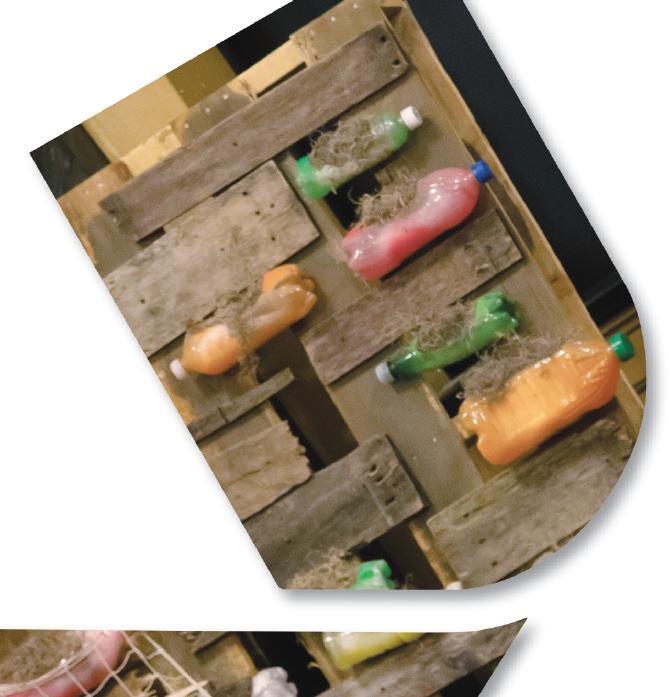

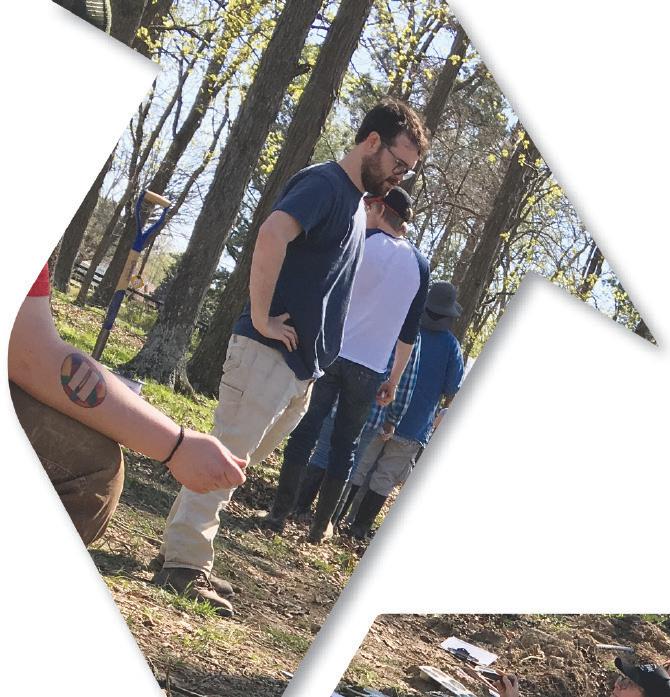



When conversations arose in the midst of the COVID-19 pandemic, the Ball State University Student Government Association (SGA) formed the idea of a community garden.
SGA adviser and director of the Office of Student Life Abby Haworth said a group of students took initiative and did research to get started in the fall of 2021. They came up with designs and different possible locations for the garden, with help from James Lowe, associate vice president for facilities planning and management at Ball State.
up, she never gardened, but her knowledge grew when she joined C&E, she said. She also said Katrina Leming, SGA senator for the Collegiate Caucus, has been a big help in the process of setting up the garden.
Owens said a lot of research went into the garden, having to know which plants can be planted next to each other. Because of this, she said there was a lot of collaboration to put the garden together, working with different departments, senators and other people to help things get set up.
“The main thing that we want students to do is become good citizens,” Haworth said. “That’s part of why you come to a university to build a sense of community, and we hope that you’ll have that community once you leave here. No matter where you end up, you’re going to find those communities within your work and areas where you live. The community garden is just an example of how to build a community.”
The word “community” was a staple when talking about the project.
“I’m hoping that it might get bigger and more involved with the community,” Bandith Carr, SGA senator, said. “I want to see more events and more things that we do that connect the Ball State community, along with the Muncie community.”
Lowe said there were a couple of spots they had in mind; however, there was always the constant goal of having it be accessible and close for students.
“[SGA is] working with us to install signs off of Worthen Drive, or the east side of the arena parking, to direct people that Cardinal Street is the access to get back to the garden,” Lowe said. “It just worked out, and I’m encouraged because they’ve been very active. They are moving on and launching the project. Hopefully they can find some means to sustain this and make it sustainable for years to come, [and] I think that location will give them that opportunity.”
The garden is just behind Worthen Arena; it’s the first house on West Cardinal Street.
SGA’s Community and Enviromental (C&E) Affairs Committee chair Sarah Owens, Teacher’s College Collegiate Caucus representative, took charge of the community garden. The C&E Affairs Committee’s goal is to pursue environmental efforts on Ball State’s campus that encourage a community based around sustainability.
“I really hope that this can be a place where Ball State students feel welcome to do many different types of activities,” Owens said. “I want it to be a place of community, a place where ... students can come together, get to know each other and really rally around the fact that sustainability is important to us as Cardinals.”
There are over 15 items being planted; some of those are Genovese basil, golden acre cabbage, honeydew melon, large red cherry tomato and sugar baby watermelon.
Additionally, Owens hopes the food grown there can be efficient enough to be given away to students for free. She said there are five garden beds, so she is not expecting a “Walmart superstore” from it but is hoping its enough to positively benefit students.
Although Owens has fully bought into the garden, she has not always been interested in it. Growing
Since it has been an ongoing project, many budget requests and approvals have taken place to get the garden built, and a large help came from Carr, Leming and Casey Rockel, SGA senator in the At-Large Caucus.
One of the first budget requests was Nov. 3, 2021, for $1,200 to start the project.
“I helped the community garden with supplies, and we passed a budget request that was just on materials,” Carr said. “For the community garden, we supplied things like fire pits, wheelbarrows and [we had] volunteers and things.”
There will be more to offer than just the garden. For events held at the garden, there will be a portable fire pit that will be locked in one of the sheds at the garden while not in use.
Owens is hopeful that other organizations, including environmental organizations, feel comfortable having events at the garden. As of right now, there is not a ‘reserve a room’ status on the garden, but she did say to feel free to text or direct message the community garden Instagram account which is @bsucommunitygarden or reach out to the SGA email sga@bsu.edu.
Haworth said this project embodies what SGA is all about: being a voice for the student body and having the student’s interests in mind. She said it is important for SGA to continue to find out what students are wanting to make Ball State more comfortable in whatever space they need.
I’m hoping that it might get bigger and more involved with the community. I want to see more events and more things that we do that connect the Ball State community, along with the Muncie community.”
- BANDITH CARR, SGA senator
The main thing that we want students to do is become good citizens ... The community garden is just an example of how to build a community.”
- ABBY HAWORTH, SGA adviser

Sustainability and environmental protection is very important to me, so I personally think about how we do things as far as taking care of our spaces and taking care of the Earth.”
- PHILIP CLAY, Manager of sports facilities








easy. Glass containers are prohibited, but sometimes people still sneak them in, so if they get broken glass in the bag, they have to throw it all away.
Glass is more of a concern in the tailgate lot where Mike Planton, the director of landscape services at Ball State, is in charge.
When it comes to trash, Planton said the tailgate lot is worse than the lots around the stadium.
“We’d have people dump hot grills and set them on fire, it’s pretty amazing,” Planton said. “Usually, the police are here, so they’ll get it out, but whatever is in there, it’s trash, so we just have to throw it away.”




 Lila Fierek
Lila Fierek
 Copy Director and Lifestyles Editor
Copy Director and Lifestyles Editor
Behind every game, every field and every meet at Ball State is a team of people: the sports facilities staff. With 23 people and multiple events each day, it’s up to Philip Clay and the rest of the staff to get everything in order and provide a safe location for students to play. But this doesn’t happen without care, and that means making sure each event is as sustainable and environmentally friendly as can be.


Clay is the manager of sports facilities at Ball State, and he has been in the position since the department opened 31 years ago. As the manager of sports facilities, Clay said his job fits into three parts: a responsibility for custodial services, a responsibility for event and game day set-ups and takedowns and a responsibility for all outdoor athletic maintenance.
Clay grew up involved in sports, going from a ball boy as a kid to an usher and event organizer in college. Despite this, he majored in botany at Miami University (Ohio), so when Ball State offered him a job to be outdoors and help with sports, it was the perfect fit.
While Clay’s role is to cover all sports-related events, he said he is mostly involved in those outside, including soccer, baseball, football, etc.
Clay, along with other members of the sports facilities staff, is the one who picks up the trash after games. He said it usually takes about 10 to 15 people to clean up after an event, but it’s different every time.
The sports staff tries to clean up as soon as they can after each game, but it’s not right away. Clay said the time to pick up after each game can vary, but it’s normally between two to five hours. Football games take much longer than basketball games, he said.
“We also throw it out there to our sports clubs to earn a little extra money for their club,” he said. “And they often come in and do major clean up stuff like after a football game or sometimes a basketball game, occasionally other events.”
These clubs include the gymnastics club, quad ball, an equestrian club, ultimate Frisbee and more. The first step of the job is to get all the trash and recycling out. The staff tries to have recycling and trash containers next to each other, so they’re more easily accessible.
Gonzo Barajas, the senior director of auxiliary services for athletic facilities and events, said the staff places equal amounts of trash cans and recyclable receptacles in the venues.

“We also make announcements asking fans to deposit trash and recyclables in the appropriate containers,” he said.




On popular weekends like Homecoming and Family Weekend, Clay said football games often end up needing two 30-yard containers to pick up all the trash. At Worthen Arena, it often takes around 25 40-by-48 inch bags of trash to clean up. Sometimes that number can reach up to 40, according to Clay.

The better trash and recycling are sorted, the more likely they’re able to actually recycle the materials.

Due to federal regulations on the risk of bloodborne pathogens, the employees aren’t allowed to sort the recycling. Clay said there have been initiatives where students have volunteered to do it, but the staff isn’t allowed to due to the contamination factor.
“We obviously encourage people to get stuff to the containers, but sometimes our culture, for whatever reason, is not so good at that,” he said.


Clay said Ball State does a good job of recycling aluminum cans and plastic bottles, the items most often picked up, but other things, like glass, aren’t so














Though it changes per game, Planton said they usually collect about 20 to 30 cubic yards of trash. Once they’re done, Best Way Disposal takes the trash and recycling for them. All recycling goes to East Central Reporting, according to an employee at Best Way Disposal.
Along with focusing on the importance of recycling, Clay and other members of the staff try to incorporate ways to improve sustainability into their work.
“Sustainability and environmental protection is very important to me, so I personally think about how we do things as far as taking care of our spaces and taking care of the Earth,” Clay said.
One thing Clay focuses on is the materials and products he uses when preparing the soccer fields. He uses a zero percent volatile-organic compound (VOC) paint, meaning that it’s “ultra-friendly” and not hazardous to the ground.
Clay also uses organic fertilizers when treating the natural grass fields.


“The better that you maintain a natural surface field as far as your cultural practices — mowing, aerification, seeding, fertilizer — when you maintain your fields at a higher level, then you can limit the amount of herbicides and insecticides that we use on a field,” he said.
In 2012, Ball State was one of the first schools to move from using a coal power plant to a geothermal heating and cooling system, something that impressed Clay. According to the U.S. Energy Information Administration, geothermal power plants use about 99% less carbon dioxide than fossil fuel power plants. According to the National Renewable Energy Laboratory, over 650 schools signed up to make this change in 2020.
The sports facilities sta at Ball State is working to make Ball State more sustainable.
I think we’re as responsible as we can be as far as energy used and products used. We try to recycle the best we can.”
- PHILIP CLAY, Manager of sports facilities
Sand, clay, silt, peat, chalk and loam. All are different types of soil. According to International Soil Reference and Information Centre (ISRIC), soil filters rainwater to help prevent flooding; it helps plants grow and acts as a buffer against pollutants, which helps improve groundwater. Without soil, human life would be difficult. The science of soil has always been a passion of Jessique Haeft, assistant professor of natural resources at Ball State, since growing up in California. Since 2014, she has been sharing that passion with her students, teaching them valuable ways to care for the environment.

Haeft grew up on a cattle ranch in California and attended California Polytechnic State University in San Luis Obispo.
While Haeft’s original interests lay with plants, her professors and other faculty gave her advice that not many plant scientists or horticulture majors truly understand the soil. In the end, she decided to major in soil science and take classes in horticulture — the best of both worlds.
Due to increasing tax rates, however, she soon began to witness the land in her surrounding area being sold off to developers.
“No one in my family could afford to keep it from generation to generation, and I really wanted to keep up with the farm lifestyle,” she said. “That is how I ended up in the Midwest; it is more affordable here to be able to do that.”
Haeft said there are a limited number of soil science programs around the nation, along with some people who
specialize in what she does. So when her current position opened up at Ball State, Haeft made the move to Indiana.
“The position was like the perfect combination of everything I wanted to do,” she said. “There was the sustainable agriculture aspect, the soil aspect, and the classes they wanted me to teach were all areas of science that I had specialized in, so it worked.”
Now having been at Ball State for nearly nine years, Haeft continues to share her passion of soil sciences and sustainable agriculture with her students and colleagues.
“I just really fell in love with the part of soil where we describe all the different characteristics, basically the soil judging part, and not a lot of people specialize in that,” she said. “I kind of found a pathway to distinguish myself in my career and hopefully be successful, and I feel like I have that.”
Every year, the biggest contribution Haeft said she makes to Earth Day is planting a tree with her kids on their property. In her classes, Haeft said she and her students always have a discussion about what they are doing for Earth Day and how it relates to what they have been learning.
She also protects the environment year-round by not using pesticides and growing her own food, so she limits the amount of fuel used to acquire such food and limiting her use of plastics. Haeft said she also does “a lot” of canning.
“I always try to teach my children and my students to try and educate as many people as possible about food insecurity around the world and how soil and water quality tie into that,” Haeft said. “The soil beneath our
People work on equipment at a farm in Albany, Ind. BALL STATE MARKETING STRATEGY, PHOTO PROVIDED

feet is an ecosystem, and it needs to be protected.”
Associate professor of natural resources and environmental management Joshua Gruver said another important thing to remember when it comes to our food is knowing where it comes from, understanding whether it is “in-season” or not, what the transportation was like getting it here and how much the transportation cost.
“When we get grapes, they are coming from Chile or somewhere else far away,” he said. “The dollar, or more, you pay for that gets spent and hardly any of it actually goes to the farmer who grew it. It goes to the transportation, so maybe you wait until grapes are inseason in the U.S. to shorten that chain.”
According to Gruver, the farmers who grow this produce, such as the grapes, only receive a profit of seven cents on the dollar.
Gruver said that Haeft has always been very passionate about her work, and her passion and excitement for her work really rubs off on her students. Current doctorate student Carson Wright has experienced that passion first-hand.
Wright met Haeft in 2015 and officially began working with her in 2016 when he took her soils class. Wright credits his decision to pursue a doctorate to Haeft, saying that when she asked him to come back and become one of her first doctorate students, the answer was clear.
“I have never heard someone talk about soil with that much excitement because that is just kind of a bland thing to most people,” he said. “Her excitement is just very contagious.”
Ball
Haeft shares her passion for her students and the environment in honor of Earth Day.
The soil beneath our feet is an ecosystem, and it needs to be protected.”
- JESSIQUE HAEFT, Assistant professor of natural resources
Continued from Page 10
For students interested in getting involved, there are waivers at the garden to sign up to volunteer. For students wanting volunteer hours as well, they can be verified through SGA with work at the garden. Additionally, if anyone wants to get involved in a larger way, whether it is planning, collaborating with plans or taking care of the space over the summer, contact Sarah Owens at sarah.owens@bsu.edu.
Although the garden is just breaking ground, Owens is optimistic about the future, saying she would love it if later on it is as recognizable as a spot like Frog Baby.
$2.6 BILLION
80% of Indiana is devoted to farms, forests and woodland.
94,000+
There are more than 94,000 in Indiana, with 56,649 farming operations. The average farm size is 264 acres.
Wright has had the opportunity to compete on the soil judging team, joining only the second round of students to ever be on it. Now a graduate student, he has also had the opportunity to coach alongside Haeft.
“Learning about soil and peeling back those layers is so cool,” he said. “There is so much going on underneath our feet that none of us ever think about. That is why I got into soils because I like that mystery.”
Haeft said the soil judging team allows students to analyze soil for a variety of characteristics that they can later use to make decisions within their future careers.
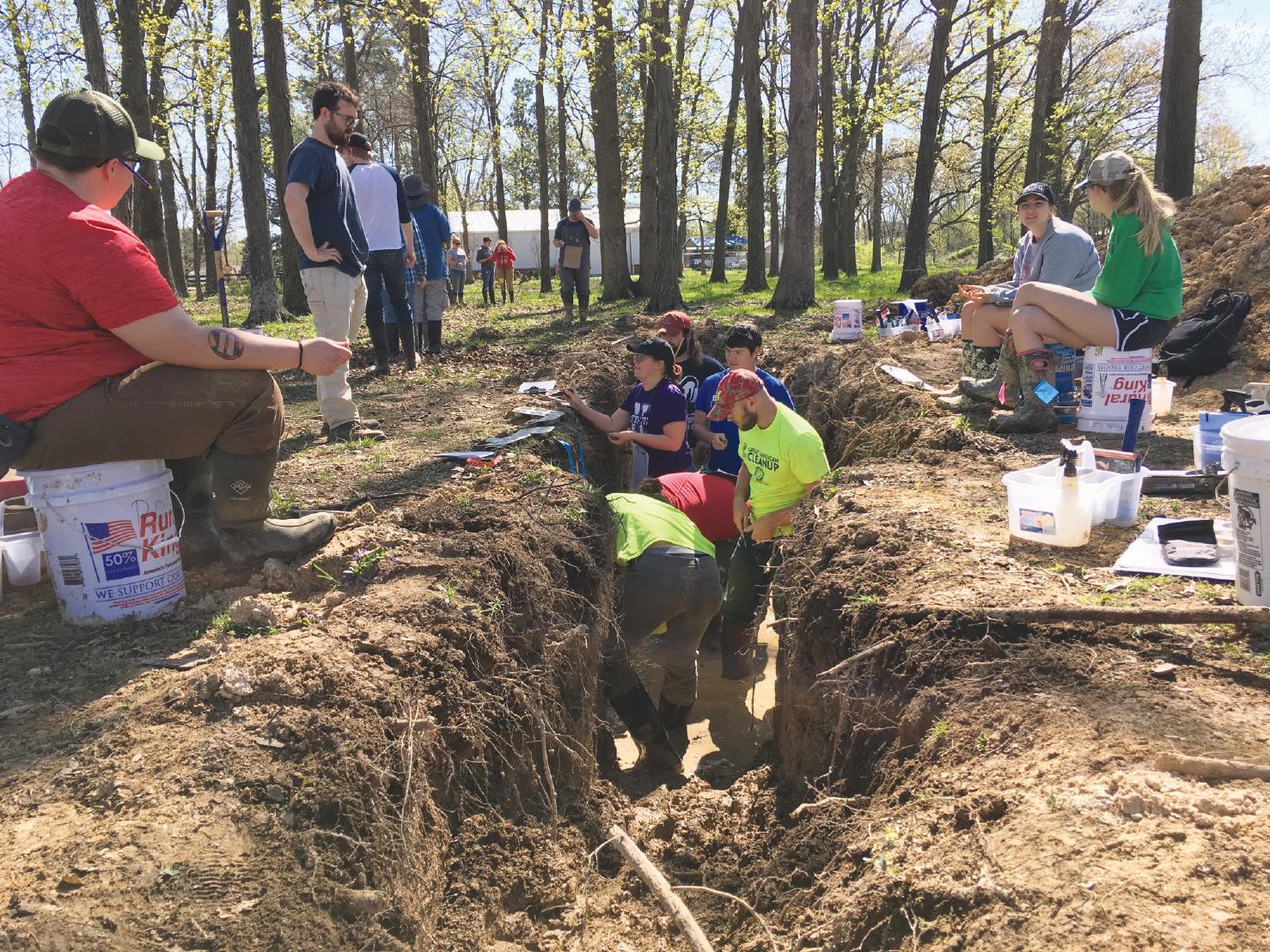
A lot of times, however, students don’t find out about the soil judging team until they are thirdyears or fourth-years. Haeft wants the team to become more visible to first-years and secondyears, so they can get involved and gain experience.
Wright said Haeft has always been great at teaching because she gets her students involved and excited.
“I have often heard her say that one of the most rewarding things is getting to watch your students graduate and grow and to see them succeed and knowing you were a part of that process,” he said.
“It was a wild and fun experience,” Haeft said. “I wanted to create a place where students can get hands-on experience and really just dive in and try new things. That is why I created the student farm because it would be a space where students can make mistakes, and it would be okay.”
The farm is located in Albany, Indiana, at the Juanita Holts Environmental Learning Center. There, students grow 179 varieties of produce on the 99 acres of land the farm lies on, including herbs, lettuce, tomatoes, cucumbers, squash, sunflower and sweet corn.
The farm also recently received a United States Department of Agriculture (USDA) grant that they plan to use to move the high tunnel, a structure that extends the growing season, closer to campus for students who may struggle finding transportation to Albany. Haeft said this high tunnel would be close to Scheumann Stadium and will have access to the campus bus routes. She said it would also be used for growing larger plants such as corn and beans.
Haeft said she is currently studying different ways that students can try new things because it is harder for farmers to take the risks in the workforce.
Students at the farm learn and practice sustainable farming techniques. One technique Haeft and her students use is companion planting, which she said is combining different crops that compliment each other in some way.
“Often, I have students who have never farmed or have very little experience in it,” Haeft said. “They learn by trial and error, and it sticks with them and makes them that much more successful.”
The most important lesson her students learn while working on the farm is how to work together, Haeft said, and how to supervise each other and guide teams.
“It is incredible watching my students grow because, a lot of times, I will get students who show up who are really quiet and don’t want to talk, but then, three weeks later, they are giving orders and coming up with plans,” she said. “It is just like watching plants flourish, I love seeing it.”
Haeft said one of her favorite memories of working with her students is that one morning at 5 a.m., her and her students were picking basil to go to the farmer’s market, and they were getting eaten alive by mosquitoes. She joked that she didn’t even know mosquitos were alive at 5 a.m.
“I remember looking out and seeing the tenacity of my students because they were so excited to be involved,” she said. “Not one of them complained; not one of them was mad about being here at 5 a.m. getting eaten by mosquitos. They could have very easily been miserable considering the circumstances, but they were laughing, joking around and playing music. It really showed me how Ball State’s students truly fly.”
Wright said that Haeft has always been great at reaching out to students to offer them opportunities they may not have even known about, which is something that not a lot of professors do.
“The student farm is an absolute blast to work on,” he said. “It is not your typical job where you are selling something to someone or stocking a shelf. You are outside and immersed in nature, and you are going to learn something new every day.”
A dream Haeft said she has for the farm is to create a giant pavilion or some kind of learning center where students can do demonstrations for the community, somewhere they can hold workshops or field days, rain or shine.
“My students are the future,” she said. “They are the ones that are going to be making the decisions that impact the coming generations, and I hope they feel passionate about their resources and protecting them.”
Haeft said she hopes to leave an impact on the environment by leaving an impact on her students. She wants them to be excited and have a love for soil and sustainable agriculture.
“The nature of education and research and trying new things is that you are going to fail 10,000 times before you get it right,” she said. “It is important to remember that you haven’t failed. You have just found 10,000 ways that didn’t work.”
Contact Savannah Jordan with comments at sjordan4@bsu.edu or on Twitter @savmjordann.
“I hope that it has a positive impact on students’ lives, whether that’s with food, whether that’s with hosting organizations there or anything else,” Owens said. “I just want to see the garden positively impact students’ experience while at Ball State. I love going to Ball State, and I really think this garden has the potential to be something great, so I would love to see that come to fruition.”
There will be a party for the grand opening April 23 in the garden from 11 a.m. to 2 p.m.
Contact Elijah Poe with comments at elijah.poe@bsu.edu or on Twitter @ElijahPoe4.
Continued from Page 11
Clay was also happy with Ball State’s switch to LED lights at Scheumann Stadium. According to the Department of Energy, LEDs use up to 90 percent less energy than traditional incandescent bulbs. LEDs also last 25 times longer.
While Clay enjoys helping the environment and preparing for events, he said the amount of coverage can be overwhelming. There are less than 30 staff members in sports facilities, according to Clay, and they’re in charge of almost all sports-related events, including the Recreation Center, Muncie Burris athletic events, Ball Gym, theatre and dance, etc.
No matter what, the event locations have to be prepared and in good condition, whether they have the people to handle it or not. Clay said the staff manages a lot of patrons and events, but they consider everyone a priority.
Weather can also be a big factor in the setup and teardown of events. Sometimes it will rain just after Clay has painted or cleaned off a field, so they’ll have to wait until it stops, but then, it may happen again. Clay said it’s challenging, but he enjoys being able to put students in a position to be successful.
“I think we’re as responsible as we can be as far as energy used and products used. We try to recycle the best we can,” Clay said. “It’s hard in an event setting. If you could get anyone to walk and put it in the container, it’d be easier.”

Contact Lila Fierek with comments at lkfierek@bsu.edu.

I wanted to create a place where students can get handson experience and really just dive in and try new things.”Source: Indiana State Department of Agriculture SAVANNAH JORDAN, DN DESIGN Students talk while working inside a ditch at a farm in Albany, Ind. BALL STATE MARKETING STRATEGY, PHOTO PROVIDED
“Take a breath in. Take a breath out. Set an intention.”
Fourth-year directing major Brynn AllisonHarty repeats the words to their cast at the start of rehearsal in between downward dog stretches and indie-pop music. They want the cast to think about the things they would like to improve during the rehearsal and think about the way that they want the rehearsal to go.
For Allison-Harty, the intention was simple: tell a story about the climate crisis with an emphasis on sustainability in production.
Allison-Harty, like other students in the Ball State School of Theatre and Dance, is tasked with completing a capstone project at the end of their senior year. The project is often entirely studentrun and is an accumulation of all of their education so far put on display.
Allison-Harty decided on the show “Urinetown: The Musical,” often referred to as just “Urinetown,” written by Greg Kotis and Mark Hollmann. Performances were held April 14 and 15 at Cornerstone Center for the Arts in Muncie.
from a water drought that has spanned over 20 years. In attempts to conserve the water left, the government limits the water supply by only having
one bathroom and having residents of the towns pay to use the bathroom.
The idea of the government having control of water is not fictional, nor is the idea of a polluted and drying up water supply.
According to the Associated Press (AP), the Biden administration is creating a plan for how tribes and communities that rely on the Colorado River can survive on a water source that is dwindling.
President Joe Biden, according to AP, vetoed a congressional resolution April 6 that would have overturned protections on waterways.
The importance of a sustainable theatre production came to Allison-Harty in part from the growing climate crisis but as a way to enhance the storytelling of theatre.
“I think, oftentimes, we can use theatre as a tool for social change. At least that’s why I’m in it,” Allison-Harty said. “It’s why I study it. [The reason] why I direct in the first place is for kind of that creative control to script out how you can use your voice and this industry in this world. I know a lot of artists feel that way.”
One of the lead characters of the show, Bobby Strong, initiates a rebellion against the government.
possible,” Vázquez said. “He means so much good and wants to be a change for people and be the change he feels is needed, but it doesn’t work out.”
Officer Lockstock, along with Little Sally, are characters in the show as well as narrators to give the audience context throughout the show.
Allison-Harty explained that in a lot of productions, Little Sally is played by an adult; however, she had the opportunity to play Little Sally in regional theater as a child, which was her first acting experience and a big inspiration behind choosing Urinetown as her Capstone.

Officer Lockstock, a role traditionally played by an older male, is played by third-year musical theatre major Annika Erickson, a self-proclaimed “5-foot-3 21-year-old girl.”
“I think it makes some of the character dynamics and relationships a little different and interesting,” Erickson said. “The relationship between Officer Lockstock and Little Sally is definitely different. There are some scenes that, because I’m a woman, won’t come off as creepy.”
Upon rereading the script at the start of the capstone, the part that Allison-Harty finds the most shocking is when the musical takes place: 2027.
“When I got my hands on the script and read it, and it felt so current, and then to read [Urinetown]
adjustments to try to keep the production as sustainable as possible.
“One of the super easy things that we don’t think about is how much stage management’s job sometimes is to just print things for 30 people in a cast, and when I’m looking at 30 people in a cast and a libretto and a script, I’m looking at thousands of sheets of paper,” Allison-Harty said. “If we can make the switch to digital, that is already something that is already a huge step forward and reducing our waste.”
Actors in the show, like Erickson and Vázquez, are on board with the approach to sustainability.
“As much as I love it, theatre is not a very sustainable profession in the way we are going about it,” Vázquez said. “I think that shows like this and the things that Brynn and the rest of the team are doing [are great steps] in the right direction.”
Other approaches the creative team has taken include reusing old props and costumes from past Ball State theatre productions, thrifting and finding random toilets on the side of the road, AllisonHarty said.
“My academic advisor is emailing me and saying, ‘There was a toilet on the side of Lahody Meats, do you want to go get it?’ And I’d be like, ‘Yes, send me an address,’” they said.
The creative team for the show has also reached out to people on social media, growing a community following on their Instagram, asking followers, friends and family to donate props they need.
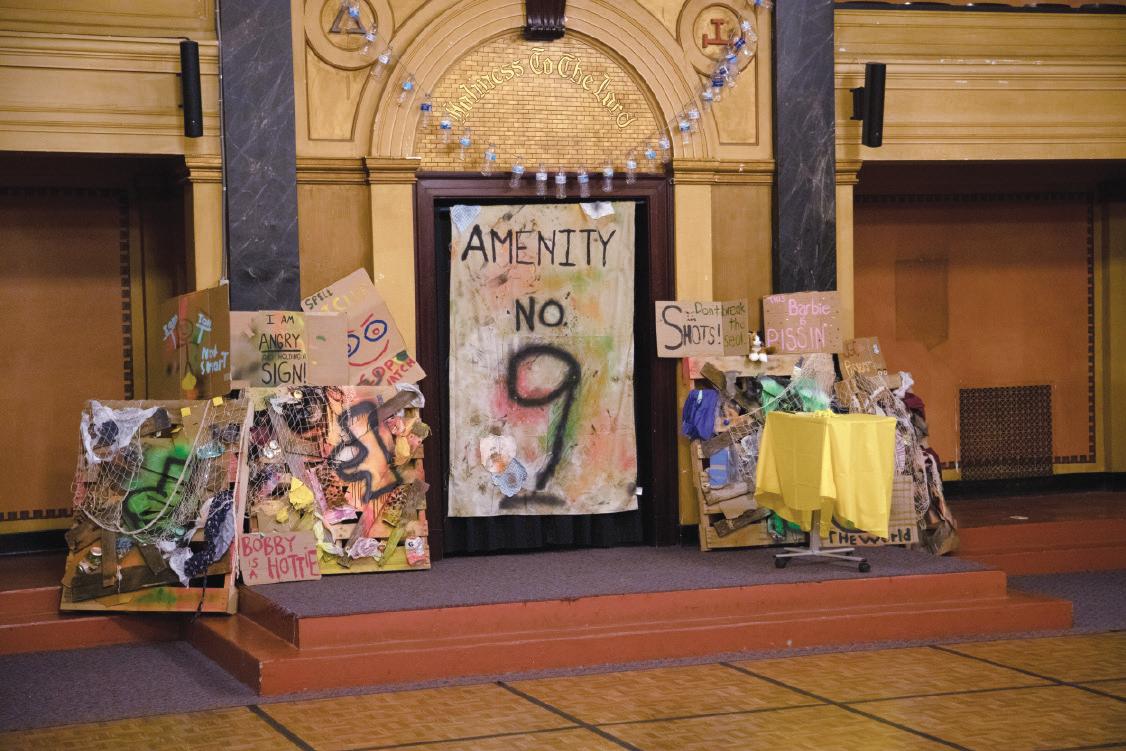
When the show is over, the creative team will recycle or donate the materials no longer needed.
“I feel that it was so important to approach this show knowing that we couldn’t make a zero waste theatre project because that’s just impossible, but at least making the effort to not [be] where the residents of this show live was part of our responsibility if we were going to tell this story,” Allison-Harty said.
The cast and creative team hopes that the show can work as a “wake up call,” Erickson said.
Contact Olivia Ground with comments at olivia. ground@bsu.edu or on Twitter @liv_ground_25.
When I got my hands on the script and read it, and it felt so current, and then to read [Urinetown] and to be like, ‘[Climate change] approached us much quicker than we thought it would.’”
- BRYNN ALLISON-HARTY, Fourth-year directing majorA mix of recycled materials, including cardboard, water bottles, nets and wood are used to create the set of “Urinetown: The Musical” on April 13 at the Heritage Room at Cornerstone Center for The Arts in Muncie, Ind. The show was a capstone project directed by fourth-year directing major Brynn Allison-Harty. OLIVIA GROUND, DN Lily Canter, who plays Hope Cladwell, dances during “Urinetown: The Musical” on April 13 in the Heritage Room at Cornerstone Center for the Arts in Muncie, Ind. OLIVIA GROUND, DN MEGHAN SAWITZKE, DN ILLUSTRATION










I believe this is an amazing goal to have. Without such reductions in emissions, climate change is only going to get worse.
According to the Environmental Investigation Agency, the rise in global temperatures needs to be around 34.7 degrees Fahrenheit. However, it is currently projected to be about 37 degrees Fahrenheit by the end of the century. This issue could be damaging to our world. I enjoy being able to enjoy nature. I enjoy being able to live in our world freely without subsequent risk. I know that I am not alone in that enjoyment.
The original New Deal was FDR’s plan to escape the massive hole that was the Great Depression. It included creating millions of high-wage jobs, providing prosperity, economic security and counteracting systemic injustice.
Elaine Ulsh ColumnistElaine Ulsh is a first-year computer science and physics major and writes “The Occasional Observer” for the Daily News. Her views do not necessarily reflect those of the newspaper.

I have been a huge fan of the environment since I was a little girl. My obsession with Smokey the Bear is evidence of that.
Something about it makes me feel at peace. Most people are pushed to listen and engage in politics when they’re around middle school age. When this happened to me, one of the earliest things I cared passionately about within politics was environmental preservation.
That’s why I was so interested when I first heard about the Green New Deal. It first made an impact on me due to its obvious namesake, the New Deal, proposed by President Franklin D. Roosevelt in the 1930s.
In my opinion, this revival of the New Deal feels like a mashup between FDR and his fifth cousin — my personal favorite president — Theodore Roosevelt: FDR with his creation of new jobs and the economic stability of his New Deal with Teddy’s naturalism.
The Green New Deal’s main purpose according to the original resolution which was introduced in the 116th Congress was to reduce the amount of greenhouse gas emissions from human sources. When this was drafted nearly five years ago, it had the ambition to want a 40-60% reduction by 2030 and net zero, which means as many emissions released as can be absorbed, by 2050.
I was confused about the Green New Deal’s relation to its namesake. As I mentioned before, it was what really captured my interest. According to the resolution aforementioned, the Green New Deal aimed to create the same high-wage jobs and prosperity that the original New Deal did but with an environmental focus.
Recently, I came into contact with someone who doesn’t care about climate change. He believes that it’s another generation’s issue. It doesn’t even bother him that his own family will be left with this world. It doesn’t influence a single portion of his life.
Until I heard that, I didn’t realize that people like that exist. I have always been environmentally conscious to the best of my ability and within my means. I have donated and raised money for environmental causes, recycled since I was little and avoided plastic as much as I could.
But not all of that is possible for the everyday person. In the socioeconomic climate of our world, the cheaper things tend to be those that are bad for the environment—wet wipes, disposable chopsticks, plastic tea bags.
When I heard about this new plan, I was thrilled and dedicated myself to learning more. Not only is it intent on helping to save our planet and not relying on the everyday person to make a drastic change, but it’s changing the infrastructure itself.
I believe that we need to give our planet the fighting chance to survive our reign of terror. We need to give our planet grace.
One of the biggest hiccups that the Green New Deal faced was the media’s interpretation of it.
The idea itself is believed to have been formed during Green Party candidate Jill Stein’s 2012 presidential campaign.
With other countries being in the forefront of the movement against climate change, the U.S. needs to pick up its pace.Columnist, “The Occasional Observer”
However, it only made its way to Congress after Rep. Alexandria OcasioCortez (D-NY) joined a sit-in protest outside former Speaker of the House Nancy Pelosi’s office, which was led by activist group the Sunrise Movement. Since then, it has created traction with both Democrats and in the Green Party.
However, according to the New York Times, when introducing the idea to the public, Ocasio-Cortez’s team released an incorrect resolution, causing the team to later redact it.
Many Republican congressmen used this opportunity to tear the idea apart and invalidate it. One senator, Tom Cotton (R-AK), is quoted in an interview comparing the rescinding of the incorrect resolution to George Orwell’s “1984” and even Joseph Stalin’s reign over the Soviet Union.
In the same interview, Cotton states that Democrats “believe that Americans driving around in trucks on farms or commuting from the suburbs … are a fundamental threat to the world.”
This is just one example of how a significant number of Republicans are invalidating the Green New Deal.
It is due to these naysayers, who have an incorrect view on what this project is truly trying to do, that it did not pass its first proposed version of the bill. They believe that its goal is to confiscate all cars and stop animal production indefinitely.
However, this is not true. The project merely proposes that the appropriate funds be available to advance the technology being used. Such technological advancements would then cut down on how many greenhouse gas emissions are being produced by some trades.
The Green New Deal was introduced in 2019, and it didn’t pass. Do we not owe the planet that we are destroying every day a chance to survive?
The way to do that is to advance technology to a point where emissions are limited and to provide an infrastructure that sets us up for success. These are all things that were proposed in the original resolution and are also things that are not out of the realm of possibility.
In fact, many countries around the world are already using similar tactics. This includes places like Morocco, which has lifted all the subsidies on diesel and gas, or India, which is currently investing more into renewables than in fossil fuels.
This is mostly due to the Paris Agreement, a legally binding international treaty on climate change.
When our planet is dying due to our past and current actions, I believe that we have a duty to ensure that it doesn’t continue to the point of no return. I envision a world where the sky is blue, the grass is green and our planet is thriving, not dying.
The ecnomy is currently heavily reliant on oil and gas. According to the U.S. Department of Energy, 80 percent of the energy in the United States is produced by coal, natural gas and oil. Oil and gas production alone are responsible for over 12.3 million jobs. It also creates energy that is cheap. Therefore, to try to get rid of it threatens the economy that the U.S. is currently living on. There is no denying the economic benefits that nonrenewable resources have on the U.S. economy.
I’m not oblivious to how switching to cleaner energy could affect my life. I am a broke college student. I know how difficult this would be for many Americans. For some, paying more for energy is not possible in the slightest. We all have known that person who couldn’t afford the luxuries in life like washing their clothes consistently, having a dishwasher or keeping the lights on during the day. Some of us have been that person. That is why investing in the proper infrastructure is so important to give Americans a fighting chance.
The original resolution mentions the creation of jobs with this new infrastructure. This would be to counteract the effects of shutting down many non-renewable energy plants and the jobs that would be lost in doing so.
In 2021, the Green New Deal was reintroduced to Congress, this time with a more dire approach. However, as it was the first time, the Green New Deal was shut down in committee.
I’m going to be honest. This project is not likely to pass anytime soon. However, it is imperative that it does. The planet is dying, and its blood is on our hands. We need to turn a new leaf in this world, a green leaf. Right now we are at a point in our world where irreparable damage has not been widespread. But, if we continue, our planet will become beyond repair.
Contact Elaine Ulsh with comments at elaine.ulsh@bsu.edu.
I envision a world where the sky is blue, the grass is green and our planet is thriving, not dying.”
Do we not owe the planet that we are destroying every day a chance to survive?”
Broken toilets.
Unanswered maintenance requests. Rent increases.
Behind the podium, at least a dozen current and previous tenants and concerned citizens spoke to Muncie City Council members about housing issues in Muncie.
Despite listening to concerns, Jeff Robinson, city council president, said state law severely limits what local governments can do. In an effort to take some sort of action, the council signed a resolution urging the Indiana General Assembly to help tenants with habitable housing.
Section 17
A unit cannot regulate:
• the screening process used by a landlord in approving tenants to lease privately-owned property
• security deposits
• lease applications
• leasing terms and conditions
• disclosures concerning the property
• lease or rights and responsibilities of the parties involved in a landlord-tenant relationship
• the rights of the parties to a lease
• any fees charged by a landlord
• any other aspects of the landlordtenant relationship
Section 6
A unit (as defined in IC 36-1-2-23) may not adopt or enforce any ordinance or regulation concerning retaliatory acts by landlords.
Sources: Indiana SB 148 (Section 17), Indiana SB 148 (Section 6)
SB 148 bans “units,” or counties, municipalities or townships, from regulating certain aspects of the relationship between landlords and tenants, among other things. For elements the city and county can’t regulate, those aspects of the tenant-landlord relationship are left in the hands of the state.
According to Section 17, the parts of the relationship Muncie is not able to control include: “the screening process used by a landlord in approving tenants to lease privately-owned property, security deposits, lease applications, leasing terms and conditions, disclosures concerning the property, lease or rights and responsibilities of the parties involved in a landlord-tenant relationship, the rights of the parties to a lease, any fees charged by a landlord and any other aspects of the landlordtenant relationship.”
The law also says in Section 6 that counties, municipalities or townships can’t adopt or enforce ordinances or regulations “concerning retaliatory acts by landlords.”
It goes further to say any ordinance or regulation made to violate Section 17 or Section 6 is unenforceable.
Rep. Sue Errington (D-Muncie) said she believes SB 148 was a “retaliatory action by the Republicans in the General Assembly” because Indianapolis city and county council were drafting an ordinance that would deal with rental places that were substandard and uninhabitable.
This is supported by a short excerpt Sen. J.D. Ford (D-Indianapolis) wrote on the Indiana Senate Democrats website discussing the Indianapolis ordinance, SB 148, and arguing it was a direct hit to Marion County voters.
Rep. Ann Vermilion (R-Marion) and Rep. J.D. Prescott (R-Union City), who both voted in favor of SB 148, were contacted by email three times through their press secretary Braden Dunlap. Each time, Dunlap said he would contact or follow-up with both, but The Daily News never heard from either Vermillion or Prescott.
However, it’s not just about what’s in tenantlandlord law in Indiana; it’s also about what isn’t.
Tenants aren’t entitled by law to deduct money from their rent to pay for their own fixing of maintenance issues, said Andrew Thomas, housing resource attorney for Indiana Legal Services.
He said seeking reimbursement for rent is
So like all these renters’ rights that the state lists, the rights exist, but there’s almost no enforcement of those rights.”
- AARON SPIEGEL, Executive director of Greater Indianapolis Multifaith Alliancesomething tenants can arrange with landlords or can be used as a defense to a claim. However, it is not a right given in Indiana law.
This is backed by Housing4Hoosiers on their website, which says there are limited instances where a tenant can repair maintenance and deduct rent, adding that tenants should talk to a lawyer.
There is also no law protecting tenants who are withholding rent while waiting for repairs to be completed, Housing4Hoosiers said via their website.
“If a tenant attempts to withhold rent, they risk eviction for nonpayment,” Thomas said. “While some courts are open to a tenant putting withheld funds in an escrow account while repairs are made, that is not a protection given in the Indiana Code and is not recommended without consulting an attorney first.”
Errington said Indiana is one of five states that don’t allow this.
“There’s not a balance between the rights of tenants and the landlords in state law,” she said. “And I believe we need to make it more equitable.”
Aaron Spiegel, executive director and board president of Greater Indianapolis Multifaith Alliance, said that the biggest misconception tenants have about their rights is, “that they have any.”

There are rights listed, he said, like the right to habitable housing and landlords being responsible for upkeep. Indiana Legal Services said these rights include “safe, clean and livable condition[s],” as well as adherence to health codes.
“But there’s really no enforcement if they don’t do it,” Spiegel said. “So like all these renters’ rights that the state lists, the rights exist, but there’s almost no enforcement of those rights.”
Since cities can’t establish a way to enforce penalties for landlords violating Indiana law, a prominent option for tenants is to go to court.
But even in court, Errington said she believes tenants are at a disadvantage because many don’t bring their own attorneys, she said, while property groups almost always do. Tenants are “handicapped by their inability to have a lawyer.”
“Since the state doesn’t allow the city or the counties to have ordinances to put some teeth in that, then people are pretty much up the creek,” she said. “ … Just your ordinary tenant is probably not gonna understand what’s being said, not completely understand and be able to refute what’s being said.”
Except for court and hoping their complaints will reach someone who cares, Spiegel said there is “not much” tenants can do. Since there are no ordinances in Indiana to establish penalties, he said the thing preventing a landlord from abusing their power in Indiana is a “good conscience.”
Muncie continues to operate in a process consisting of complaints being submitted to the city, investigated and monitored until issues are resolved.
Melinda Coffey, zoning/structural inspector for the City of Muncie Building Commissioner’s Office, said when a complaint is received by phone or online, the office sets up an inspection of the property the complaint was about.
The Building Commissioner’s Office takes pictures and can file an unsafe order against the property, notifying the owner.
In the case of MiddleTown Property Group complaints, only the owners of the rental, not the property management company, face the Unsafe Building Housing Authority Board and have the potential of being fined.
Unsafe Building Housing Authority Board meetings are open to the public at City Hall and are held monthly.
In the meeting, the owner explains where they are at regarding the necessary fixes and timeline of when the problems will get fixed, which makes them compliant, Coffey said via email. If the owner doesn’t show up, they receive a civil penalty against the property between $50 and $5,000. There can also be a fine of $100 if the owner fails to call in for an inspection.
The fines are put on the taxes of the owner. More hearings are scheduled with the Unsafe Building Housing Authority Board until the owners become compliant.
If they don’t comply, owners can be placed on the noncompliance list or demolish list. This can include tearing down a structure or cleaning the property of debris or vehicles.
“This process takes a while,” Coffey said via email. “We have several cases each month and even more properties like this. Demoing a property is a lengthy process. Our office works with other departments and can only demo what we have budgeted for. We try to compile a list of the worst cases first and so on.”
Coffey also said via email she was unable to look up how many unsafe orders were filed against MiddleTown Property Group because the orders are with the property owner.
Muncie Building Commissioner Steve Selvey said his main relationship is with the owner, although he said he is independent, not necessarily
wanting to know who the owner of the rental is while he is doing his work.
MiddleTown Property Group was a “very large, fast-growing entity,” Selvey said, and “you would expect more issues with that.” Although he said he wished some things were handled more quickly with the company, he also said young people have piled on complaints that aren’t as pressing.
Selvey stressed the difference between what he referred to as maintenance issues and issues he deals with in his line of work. He said he is more interested in things that go against Indiana code and threaten life safety, although he does encourage people to reach out to his office if they have any sort of complaints.
One thing Selvey said he doesn’t do in his line of work is negotiate contracts, adding tenants wouldn’t want him to do that work since he’s not a lawyer.
“The lease is typically 22 pages long. It is provided by the person that owns the house or is hired upon the owner’s behalf to manage the house. It is not prepared for the student’s benefit. Read it,” he said. “When they’re that long, you will be waiving some rights, and you will be upset. They will not change it for you.”
He also cautioned people to not utilize virtual tours.
“Go to the apartment, turn the water on, see if the hot water runs,” he said. “Turn the thermostat and see if the furnace kicks on, see if the air conditioner kicks on. Don’t just do it virtually. Look at it, does it smell?”
He also had other tips for people in regards to housing; he said to make sure fire alarms work, and
Selvey also said people need permits for certain work, on furnaces for example, and the permit reassures tenants things will be done correctly.
“If the guy mowing the yard is the same guy installing a new furnace, you should be scared,” he said.
Brothers Dane and Derek Wilson, owners of MiddleTown Property Group, said via email new employees go through background checks and have a 30-day tryout period where skills are assessed. They are trained closely by field supervisors, and the Wilson brothers said via email that additional training and certification are required for specialty skills.
“The industry is short on qualified maintenance people,” the Wilson brothers said via email. “Labor shortages are common across the country. MiddleTown Property Group is working with Ivy Tech to help train and hire techs from their school.”
In response to people who may challenge why property management companies aren’t held responsible like the owners are, Coffey said not every management company causes issues. However, for the ones that do, she agrees with those challenging the process.

“These management companies should be liable for some type of responsibility,” Coffey said via email. “It’s not fair to these tenants. They pay hundreds of dollars a month to rent a property that [is] not being maintained properly.”
Selvey disagreed and said property owners are the ones responsible and should be held liable, not property management companies.
quality and accountability. We are making needed adjustments in our maintenance coordination and communication processes,” the Wilson brothers said via email. “Strategically, we are looking at who we partner with and how we partner. MiddleTown Property Group has made the decision not to work with property owners that refuse to make necessary investments in the properties that they own, and we manage. In addition, we are working with the City of Muncie on ways to improve the rental housing options in the community. There are strategic investments to be made from infrastructure to revised policies that we would support and advocate to better the city’s housing stock.”
In a newsletter sent to current tenants, the Wilson brothers and current CEO and president of the company Matthew Abner said they are “improving our maintenance coordination and quality, refining our customer communication and working only with owners who will invest in their properties.”
4See RENTING, 20
The key for us was communication and response time.”
- DEB WISE, Former co-owner of Network Property Services
These management companies should be liable for some type of responsibility. It’s not fair to these tenants. They pay hundreds of dollars a month to rent a property that [is] not being maintained properly.”
- MELINDA COFFEY
Zoning/structural inspector for the City of Muncie Building Commissioner’s Office, via email
Selvey said he believes MiddleTown Property Group is trying to improve.
“I do believe that [MiddleTown Property Group] put some different people in place … And I think they’re doing a much better job to be more responsive with things that I require and address … and we are starting to communicate a little better,” Selvey said.
One example of this was when a student called him when a sewer line broke, and before he could get out there, MiddleTown Property Group acknowledged the problem, although it took a couple days, and offered to place the person in a hotel.
“I think you’re gonna have problems, and it’s how you deal with them that matter[s],” Selvey said.
Deb Wise didn’t just know MiddleTown Property Group — she was in the room.
She used to be the co-owner of Network Property Services, which Dane and Derek Wilson took over and combined with their original operation, creating MiddleTown Property Group. Network Property Services managed 250 student rentals, as well as commercial properties.
“The key for us was communication and response time,” she said.
Wise said the staff would try to answer tenants in a day and maintenance would try to get things solved in one to three days, depending on the problem.
Even if a building was technically up to code, Wise said she wouldn’t put people in the property unless she felt comfortable with the conditions.
She said she would tell parents, “If I wouldn’t put my kid there, I won’t put your kid there.”
At times, Wise said third-party management could be challenging because the property managers
• The Building Commissioner’s Office receives a complaint by phone or email.
• They set up an inspection of the rental.
• There is a fine if the owner fails to call in for an inspection.
• If the office finds structural code violations, they take pictures.
• They may file an unsafe order against the property.
don’t have all the control they’d like, such as if an owner doesn’t put money into the property.
Despite this, she said, “If they didn’t want to hold to my standard, I kicked them to the curb.”
Wise said MiddleTown Property Group grew quickly and with that growth “comes the aches and pains of it.”
The Wilsons brothers confirmed via email that their company has grown quickly.
“We found that the systems and processes that worked for us when we had 300 units did not work the same for us at 3,000,” they said via email.
Wise said if the complaints are true, tenants have the right to complain and reach out to the building commissioner, and she thinks property management companies need to be responsive.
She also said no one wants to put others in danger, and MiddleTown Property Group “must be doing something right because they manage a lot of stuff.”
The Wilson brothers gave some perspective into their current partnering practices.
“Strategically, we are looking at who we partner with and how we partner,” the Wilson brothers said via email. “MiddleTown Property Group has made the decision not to work with property owners that refuse to make necessary investments in the properties that they own and we manage.”
There have been some circumstances when owners have terminated their contracts with MiddleTown Property Group. That was the case with Ball State University.

Source: Melinda Coffey, Zoning/Structural Inspector for the Building Commissioner’s Office
• The hearings are once a month.
• The owner of the property explains the status of the fix to the property and the timeline for repairs.
Starting in 2018, MiddleTown Property Group managed properties for Ball State. The contracts from 2018 to 2023 established Ball State as the owner and MiddleTown Property Group as the asset manager.
In 2018, Ball State had 21 properties managed, but that number in later years increased to 24, according to the contract for 2019-20 which extended to 2021.
From March 31, 2021, to June 30, 2022, Ball State paid $340,000 to MiddleTown Property Group for the management of university properties. Cardinal Properties Inc., a subsection of the Ball State University Foundation, owned some of the properties MiddleTown Property Group managed.
• A property owner appears at the Unsafe Building Housing Authority hearing(s).
• They give a timeline and/or plan for repairs.
• A property owner doesn’t appear at the Unsafe Building Housing Authority hearing(s).
• The order now must go to the Unsafe Building Housing Authority.
• If the owners do not show up for the meeting, a civil penalty is placed against their property.
• The owner doesn’t call in for an inspection.
• The owner isn’t making progress correcting issues.
We will enforce what we can legally enforce, but we’re not going to step beyond what we can legally do. We don’t feel like that’s appropriate, and it’s illegal, so we’re not going to step beyond what the state statutes allow.”
- DAN RIDENOUR, Muncie mayorMuncie mayoral candidate Dan Ridenour (R) answers audience questions about his plan to become mayor, Sept. 26, 2019, at the Muncie Central Auditorium. JACOB MUSSELMAN, DN FILE
Ball State issued a statement saying it wrote a cease-and-desist letter to MiddleTown Property Group, prohibiting them from using Ball State’s name in their company name, formerly known as BSU Rentals, and Ball State terminated its contract with the property management company.
The Ball State Foundation ended its contract the same time as Ball State, Christopher Palladino, assistant director for capital planning and real estate, said via email.
Greg Fallon, chief digital marketing and communications director, said via email that Ball State terminated its contract with MiddleTown Property Group Aug. 30, 2022.
Fallon added the Office of Student Legal Services offers free resources, and Ball State can provide financial support or temporary emergency housing for students experiencing housing issues.
The complaints for MiddleTown Property Group didn’t just stop on the school and community level; the city of Muncie was also made aware of the tenants’ experiences.
When Muncie Mayor Dan Ridenour first heard about the complaints regarding MiddleTown Property Group, he said it “was very frustrating, very disappointing, and I felt for all of those people who were having challenges.”
Ridenour believes the city does everything within the law they can do when it comes to these issues.
“We will enforce what we can legally enforce,” he said. “But we’re not going to step beyond what we can legally do. We don’t feel like that’s appropriate, and it’s illegal, so we’re not going to step beyond what the state statutes allow.”
He said this is the reason tenants should research property management companies before renting and about the owner they are renting from. Ridenour said he believes a small percentage of property owners and managers cause the issues. In this case, he said “a lot of problems” were caused.
“We follow what we can do through the statute, and we’re not going to go beyond that. It’s wrong to single someone out because we don’t like it,” he said. “We single someone out because they break the rules that are allowed by state statute.”
This is the same process landlords are offered when tenants do not pay their rent on time, he said.
Ridenour said he has been pressuring lawmakers to change tenant and landlord laws in Indiana by attending regular meetings with mayors throughout Indiana, and he has talked in those meetings about out-of-state owners having properties in Muncie. They do this, according to Ridenour, because Muncie has lower property costs, and he believes this issue is most prevalent in college towns.
The Wilson brothers said via email that 30 percent of their property owners are out of state, and many, they said, are Ball State graduates who moved out of state.
Another issue facing Muncie is a housing shortage, according to Ridenour. He said his administration is working to create more housing for residents.
“Until we have enough housing stock, people are stuck with situations where they’re living in conditions that are not ideal, and ‘not ideal’ is probably being generous,” Ridenour said. “When you get new housing in your community, those who are in situations of housing that are not ideal, they
have an opportunity to move somewhere else.”
The Wilson brothers said they were working with the City of Muncie to improve rental housing options.
“There are strategic investments to be made from infrastructure to revised policies that we would support and advocate to better the city’s housing stock,” the Wilson brothers said via email.
Ridenour said some of the housing in Muncie is old, and when out-of-town owners are buying properties where the price is low, sometimes the property needs work. A lot of local people, he said, will put money in the property to build it up, but some won’t, and “that’s part of the challenge.”
Derek Wilson agrees with issues regarding Muncie’s housing.
In an email Derek Wilson sent to Muncie council members and elected officials Sept. 10, 2022, he said, “The reality is, [MiddleTown Property Group is] bringing to focus absolutely ridiculous real estate conditions the City of Muncie has allowed to exist for decades.”
Ridenour, in reaction to this statement, said he can’t speak for prior administrations. But he said his administration has been working to increase the creation of new buildings to help with Muncie’s housing shortage. He said his administration has brought in 160 new units of housing.
“[MiddleTown Property Group are] the ones that need to learn from it, and I believe they have,” he said.
In the email, Derek Wilson discussed the number of units MiddleTown Property Group has, as well as the value of property taxes they and their clients pay, which he said was over $1 million.
“We have constant offers from New York hedge funds, private equity funds and international investors to buy our entire operation and all real estate,” he said in the email. “It is tempting to cash out, but right now we’re committed! However, it’s getting to be an exhausting battle.”
He also said in the email that the company
employs more than 100 people.
“We are having discussions with Fishers, Carmel, Indianapolis about moving our headquarters and jobs … No decisions have been made at the moment,” he said in the email.
Ridenour said the reason for a lack of strong public presence regarding MiddleTown Property Group is because he “is not a social media guy to begin with,” and he had to be shown what was going on when tenants were posting their struggles
on social media. He did meet with the Wilson brothers to ask what was going on, and he knows some council members also met with the brothers.
When The Daily News interviewed Ridenour, he said he had not visited any of the properties tenants have complained about and instead lets the housing department visit those properties. He receives updates from the building commissioner.
A map of the locations MiddleTown Living (a subsection of MiddleTown Property Group) has available throughout Indiana
In short, property management companies have just as much incentive as any other employee or contractor to do a good job. Even if it’s the employer that will take the first financial hit, the employee is the one who loses their salary and gets a stain on their record.”
- MICHELE OWEN Director of communications for City of Muncie4See RENTING, 22
Continued from Page 21
On March 21, 2022, Top Star Realty Group LLC was granted a tax abatement for The Markets on Madison “economic revitalization area,” according to Resolution No. 8-22. For the taxpayer information, Derek Wilson was listed as the property manager and the taxpayer, while the Muncie Redevelopment Commission was listed as the designating body.
Michele Owen, director of communications for Muncie, said the tax abatement was granted to Top Star Realty Group LLC, and Ridenour said the city doesn’t ask who companies use for maintenance, who they bank with, etc. The city also does not give referrals. To Owen and Ridenour’s knowledge, they said, the developers had not yet contracted with MiddleTown Property Group when the tax abatement was voted on.
The Wilson brothers said they never received a tax abatement or financial assistance from the city. Although they worked with The Markets on Madison that received the tax abatement, they did not own that or benefit from it financially.
To Ridneour’s knowledge, the city also does not work with MiddleTown Property Group directly. He is unsure whether MiddleTown Property Group owns any of the properties the city works with, and he does not know what was done before he came into office.
MiddleTown Property Group does manage a property Ridenour said he wants to see successful, which is the Southway Plaza, which according to the tax abatement, The Markets on Madison is apart of.
Looking ahead, Ridenour does not believe tenant issues with MiddleTown Property Group will affect Muncie’s future since it’s a private company not affiliated with the city.
“My hope is that [MiddleTown Property Group] will adjust their procedures,” he said. “There is a tendency for, over time, things [to] work out.”
In regards to the commissioner complaint process, Owen said she and the mayor believe this still gives property management companies an incentive to change, despite them not having to go to the Unsafe Housing Board Authority meetings or getting charged.
“If poor management results in a landlord losing tenants or having to pay fines, then that management company is almost sure to be fired (or not renewed when their contract comes up),” Owen said. “Being fired by a single landlord could mean anything from the loss of one property or hundreds, and earning a bad reputation means that opportunities for future business will be limited. In short, property management companies have just as much incentive as any other employee or contractor to do a good job. Even if it’s the employer that will take the first financial hit, the employee is the one who loses their salary and gets a stain on their record.”
In the 2022 session, Senate Bill 230 was proposed by Sen. Fady Qaddoura (D-Indianapolis), Sen. Greg Walker (R-Columbus) and Sen. Shelli Yoder (D-Bloomington). The bill would require a landlord to repair or replace essential systems no later than 24 hours after being notified by the tenant, and it would give the ability for a tenant to give rent money to the clerk of the court or an
- SUE ERRINGTON, State Rep. (D-Muncie)
attorney trust fund as ordered by the court.
The bill didn’t pass.
“All of the committees are chaired by the majority of members, and, in Indiana’s case, it’s the Republicans, and [there are] always a couple thousand, maybe more, bills introduced,” Errington said. “… So they pick and choose what they want, and it’s really hard to get a Democrat bill to be heard in committee. If it doesn’t pass out of committee, it is basically dead.”
In the House, the bill would definitely be dead according to Errington, but in the Senate, a legislator can bring the language up to put it in another related bill.
In the 2023 legislative session, Senate Bill 202 was proposed to assign housing concerns to a committee.
The housing concerns were to protect tenants against “negligent out-of-state” landlords and help with habitability and living condition standards for tenants in single and multifamily units, among other things. It also talked about “unsafe building and nuisance laws” for local governments to use for landlords who violate code.
The bill died after being referred to a House committee on Rules and Legislative Procedures, after passing through the Senate.
Not every bill that could affect tenants has died.
Another bill, House Bill 1075, allows the circuit court or superior court to dissolve a corporation in a proceeding by the attorney general if they continue “to exceed or abuse the authority conferred upon the corporation by law,” among other things. If the corporation doesn’t correct a violation within 45 days, the attorney general can commence an action against the corporation.
As for MiddleTown Property Group and tenants, the Wilson brothers said via email that they invite residents with outstanding issues or concerns to contact the Resident Services office at 765-289-7618 option 2 or through email at residentservices@middletownpg.com.
Contact Elissa Maudlin for comments at editor@ bsudailynews.com and on Twitter @ejmaudlin.
Ball State Daily News editor-in-chief Elissa Maudlin began working on this story in September 2022 after, in August 2022, The Daily News received a call from someone with a tip regarding housing conditions at a MiddleTown Property Group rental.
During the eight-month investigation, Maudlin talked to more than 20 different sources, including tenants, a lawyer, representatives from the city and state, property owners, MiddleTown Property Group executives and others. She also filed public records requests for information regarding Ball State University’s previous property relationship with MiddleTown Property Group. Maudlin also examined things, including Indiana business records, property records, public records of emails between the City of Muncie and MiddleTown and complaints issued to the Muncie building commissioner. Additionally, Maudlin reviewed Indiana tenant law and verified that research with a lawyer, state representative Rep. Sue Errington (D-Muncie) and an independent housing advocate. Five requests to interview elected officials who were in support of Indiana tenant law were made, but the requests were answered by their
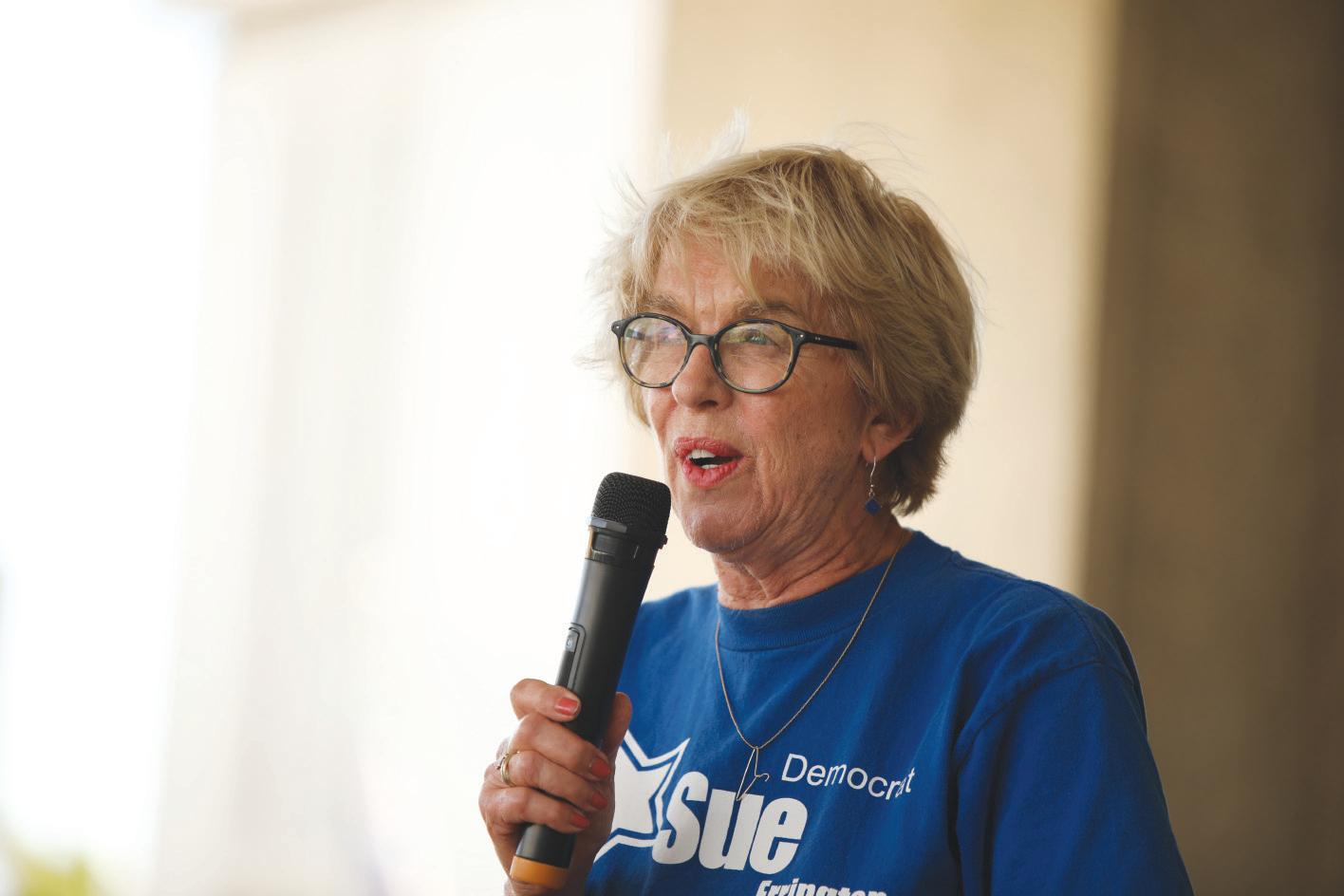
press secretary, who said he’d tell them, and Rep. Ann Vermilion (R-Marion) and Rep. J.D. Prescott (R-Union City) didn’t respond by date of publication.
Maudlin reached out to MiddleTown Property Group’s marketing team, who answered the request for comment within a few weeks and in a timely fashion, attributing the comments to Dane and Derek Wilson. Maudlin asked a multitude of specific questions, and while MiddleTown Property Group chose to answer some of the questions, they said, due to the volume of questions, and their desire to protect the tenants’ privacy, they would not answer them all.
Daily News photographers, videographers, designers and editors contributed significantly to this work. Additionally, Maudlin and The Daily News adviser Lisa Renze, sought external expertise from the Student Press Law Center, an independent, non-partisan organization that among other things provides a legal hotline for college journalists and their advisers, and professional mentor Rick Green, editor of The Press Democrat and chief content officer of Sonoma Media Investments in Santa Rosa, California.
There’s not a balance between the rights of tenants and the landlords in state law. And I believe we need to make it more equitable.”






Thousands of Ball State Online students have benefitted from the convenience of taking online courses toward their degree. What are the benefits of Ball State Online?

• Stay on track for graduation
• Avoid scheduling conflicts that interfere with your future plans
• Pay no on-campus fees with a fully online schedule

• Learn from the same faculty that teach on-campus courses
Questions? Call 765-289-1241 or visit bsu.edu/online/summer